I've been researching the idea of Unconditional Basic Income since 2013. Here's a list of findings I've compiled from various UBI experiments, unconditional cash transfer studies, and cash dividend research.
The data speaks for itself.
Data: #basicincome reddit.com/r/BasicIncome/…

The data speaks for itself.
Data: #basicincome reddit.com/r/BasicIncome/…

1) "The design and framing of Mincome led participants to view payments through a pragmatic lens, rather than the moralistic lens through which welfare is viewed… this paper finds that Mincome participation did not produce social stigma."
#BasicIncome onlinelibrary.wiley.com/doi/10.1111/ca…

#BasicIncome onlinelibrary.wiley.com/doi/10.1111/ca…
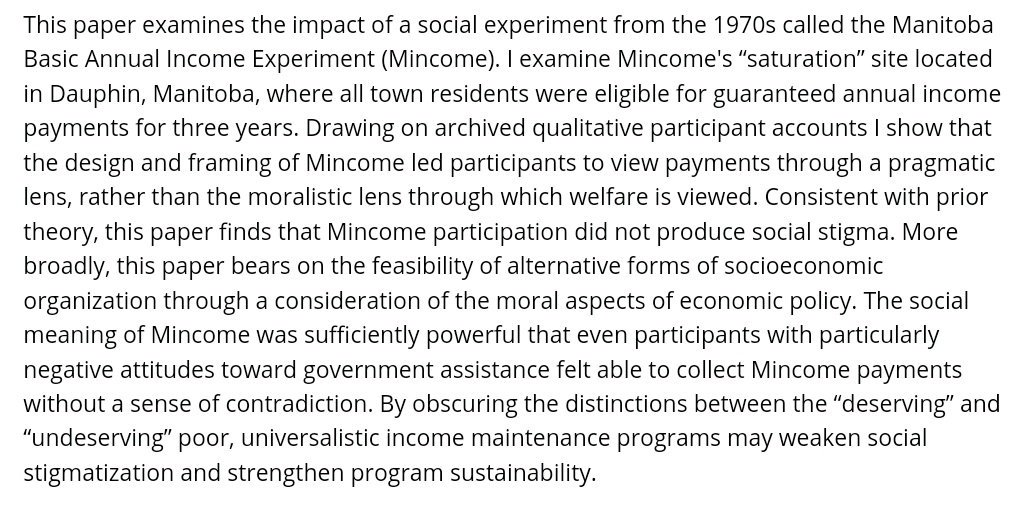
Although there was a slight decrease in hours worked per year when primary earners were provided a basic income guarantee in the 1970s, that emerged as a result of spending more time between jobs, reasonably looking for a *good* job instead of *any* job.
academia.edu/1159217/A_fail…


academia.edu/1159217/A_fail…
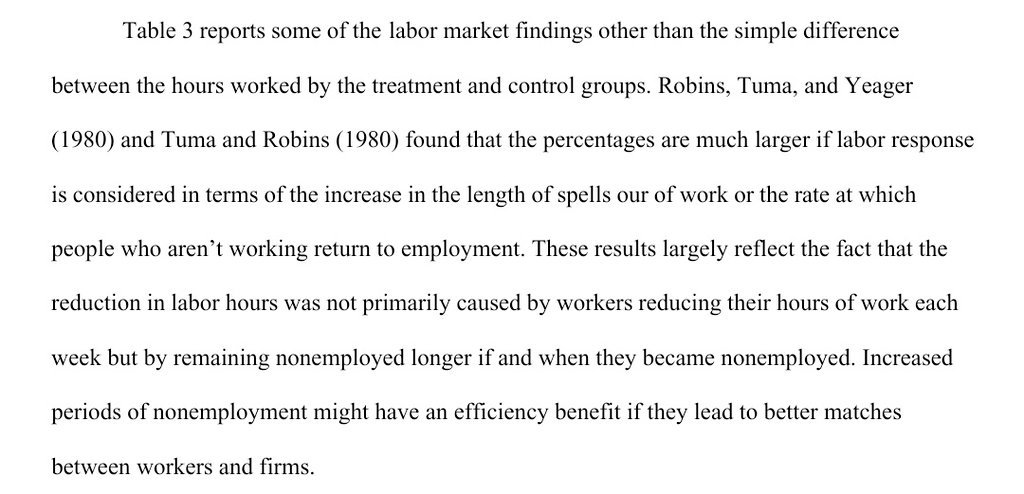

When a basic income guarantee was tested in Canada in the 1970s, teen males decided to quit their jobs and go back to finish school. Young women made the same decision and as a result more women under 25 chose education instead of motherhood.
#BasicIncome livableincome.org/rMM-EForget08.…

#BasicIncome livableincome.org/rMM-EForget08.…
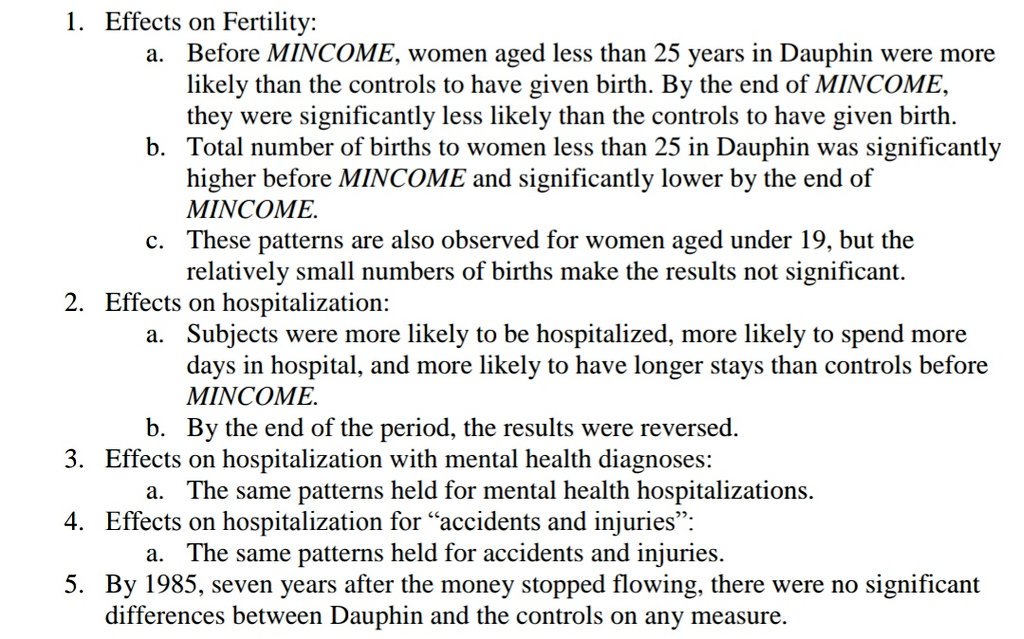
Not only did fertility rates decrease for women under 25 when provided basic income guarantees, but those of all ages who did become moms were better able to focus on being new parents by using their payments to extend their maternity leaves.
#BasicIncome livableincome.org/rMM-EForget08.…

#BasicIncome livableincome.org/rMM-EForget08.…
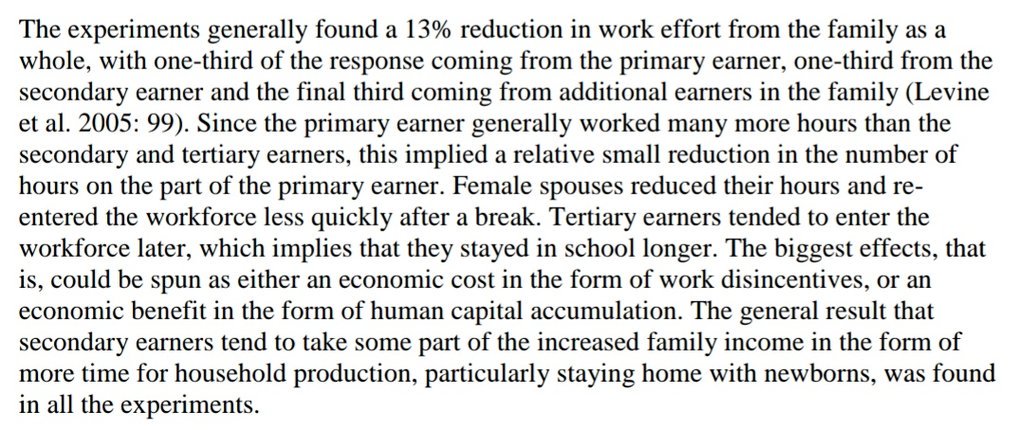
In UBI experiment after UBI experiment and cash program after cash program, a practically universal result of unconditionally providing money to pregnant women is that their nutrition improves, and as a result their babies are born healthier.
#BasicIncome
#BasicIncome
Babies born healthier may be the most transformative of all effects of basic income. Epigenetics show that healthier babies will be healthier adults who in turn have healthier babies and low birth weight is correlated to less healthy adults who earn less.
science20.com/news/correlati…

science20.com/news/correlati…
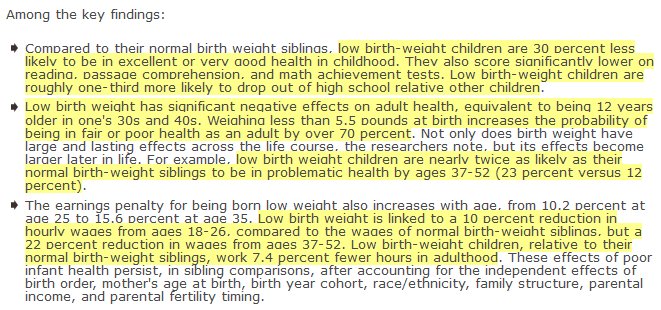
One of the closest examples of a true UBI experiment in the US occurred accidentally and started in 1997 in North Carolina when the Cherokee nation began providing dividends to families years into a study of child poverty. The results?
TRANSFORMED LIVES.
thecorrespondent.com/4664/why-do-th…




TRANSFORMED LIVES.
thecorrespondent.com/4664/why-do-th…

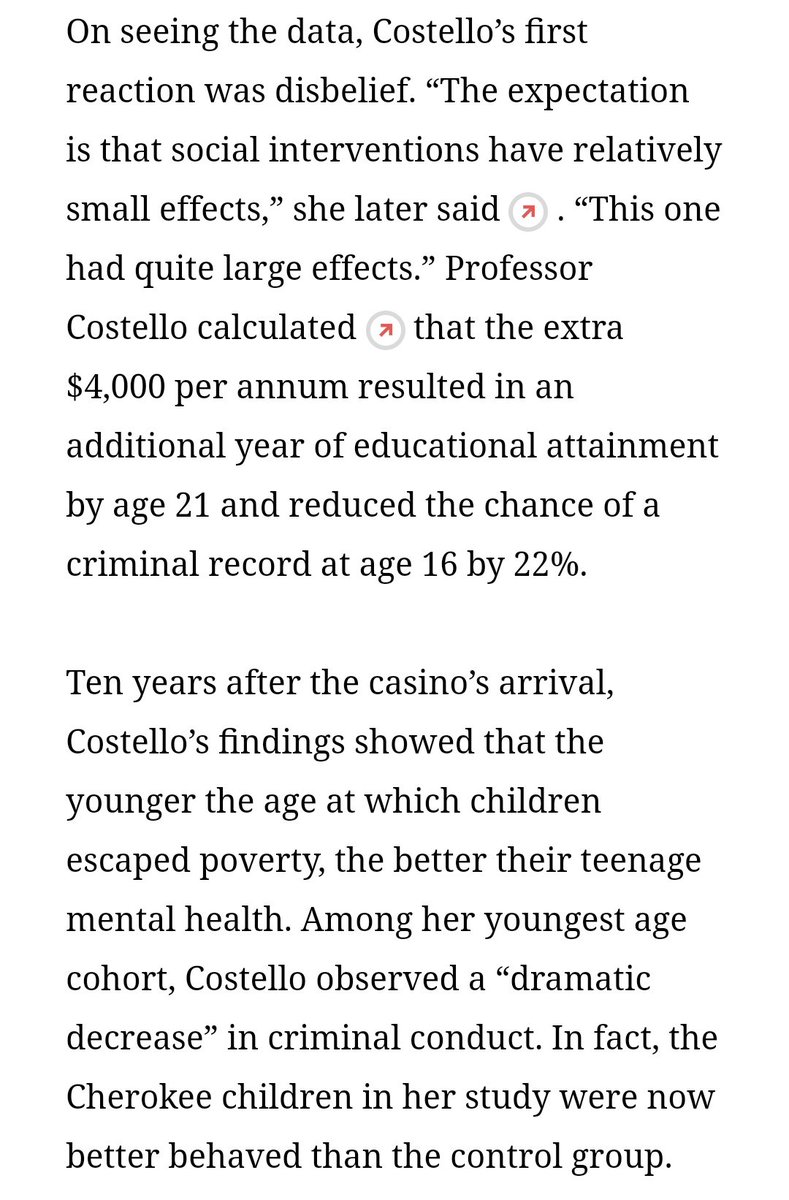
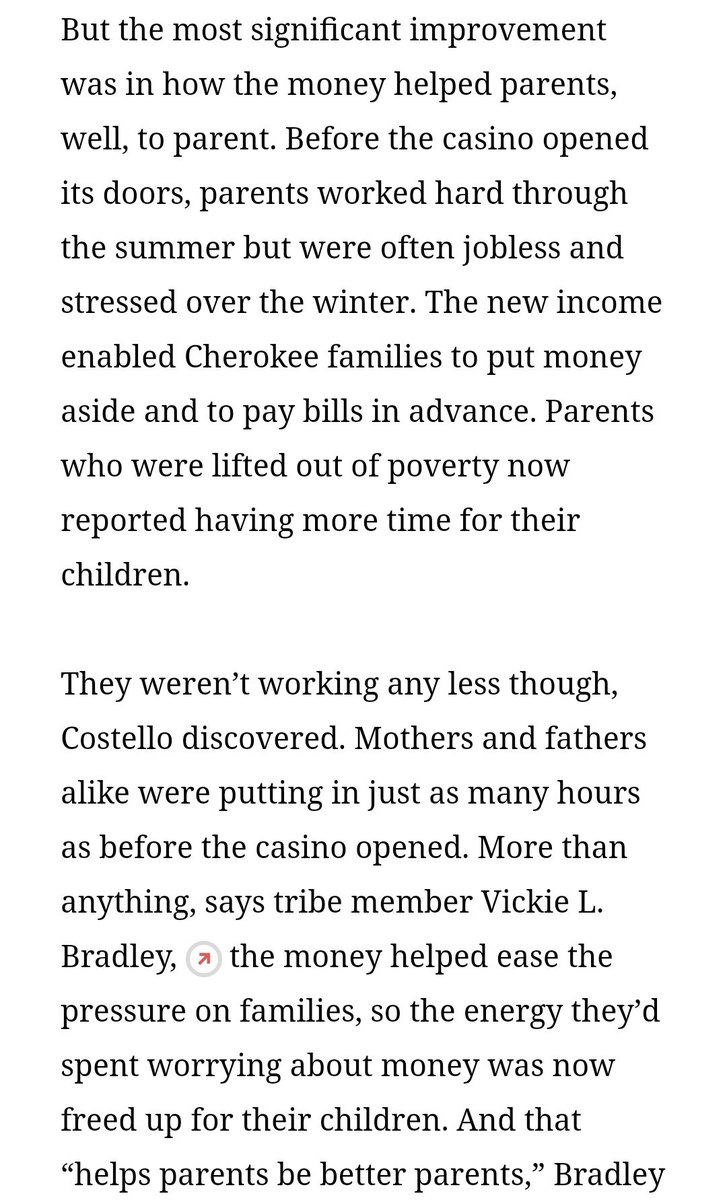
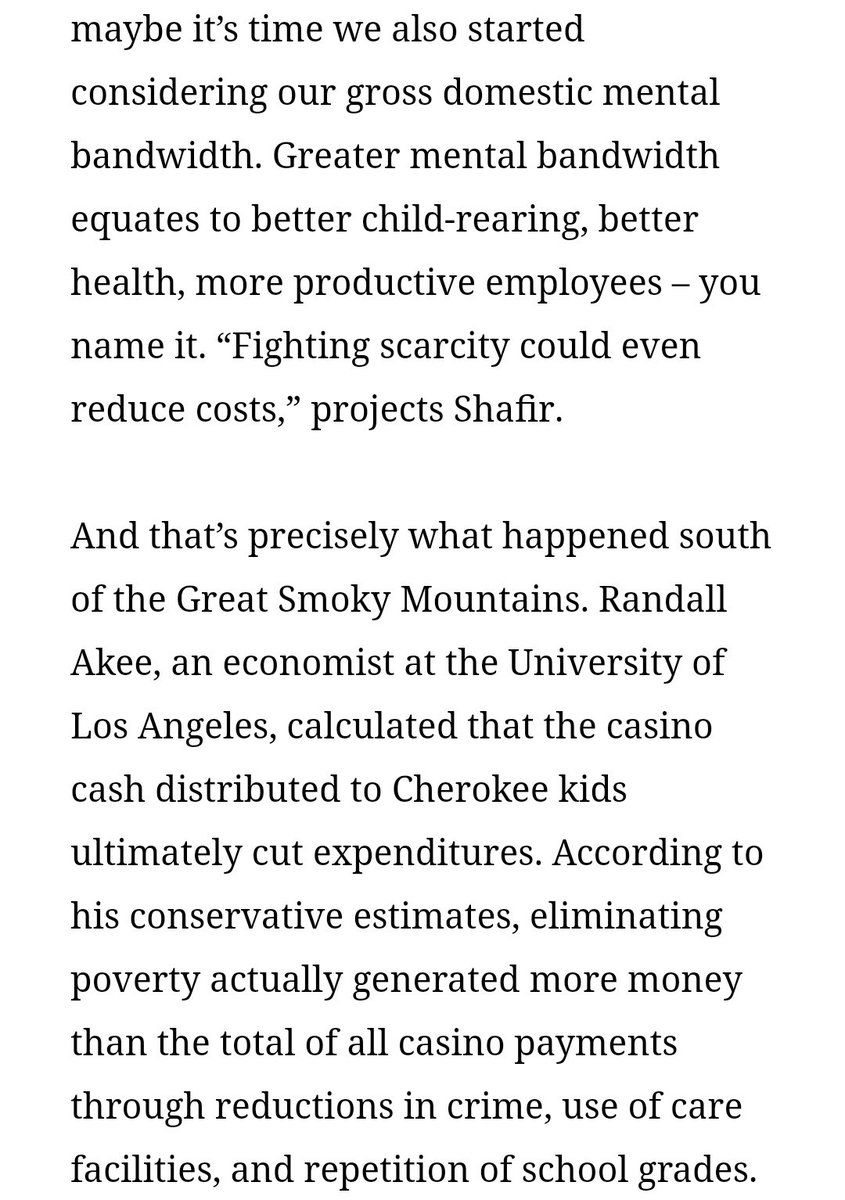
Another effect of the UBI in North Carolina was decreased alcohol consumption, most likely due to reduced stress. This isn't an outlier. Overall, looking at study after study, cash transfers result in a slight decrease in alcohol consumption.
#basicincome davidevans.blog/2016/11/29/the…

#basicincome davidevans.blog/2016/11/29/the…
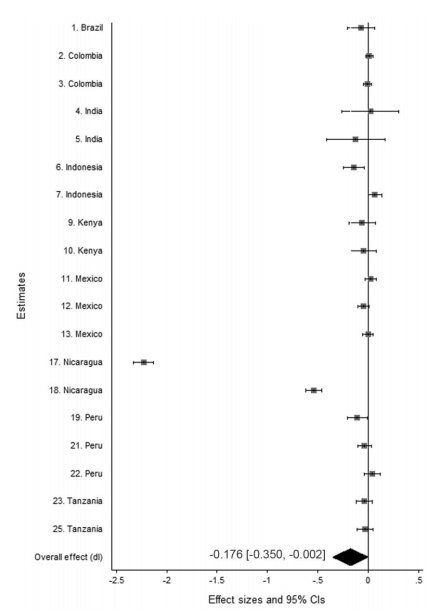
A review of 53 studies across 14 countries found that cash transfers can be effective in tackling structural determinants of health such as poverty, education, household resilience, child labor, social cohesion, and civic participation.
#BasicIncome #SDOH academic.oup.com/heapol/article…

#BasicIncome #SDOH academic.oup.com/heapol/article…
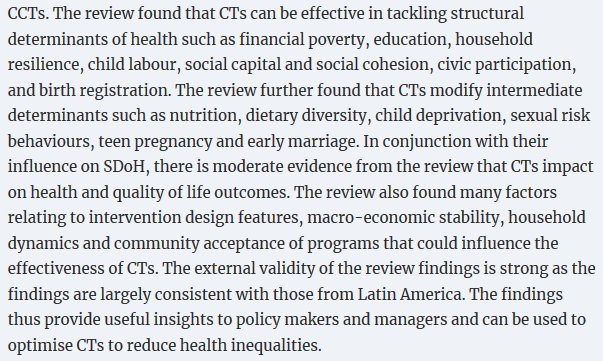
Basic income recognizes the social determinants of health. What we treat in hospitals is largely the result of people having insufficient incomes and too much economic stress. This is how the Dauphin experiment reduced hospitalization rates by 8.5%.
#SDOH cmajnews.com/2018/08/07/can…

#SDOH cmajnews.com/2018/08/07/can…

The "Social Security notch" provides further causal evidence of the effect on health of cash transfers. Seniors whose incomes were increased saw "clinically meaningful" improvements in cognitive function that reduce Medicare/Medicaid costs.
#BasicIncome nber.org/papers/w21484



#BasicIncome nber.org/papers/w21484
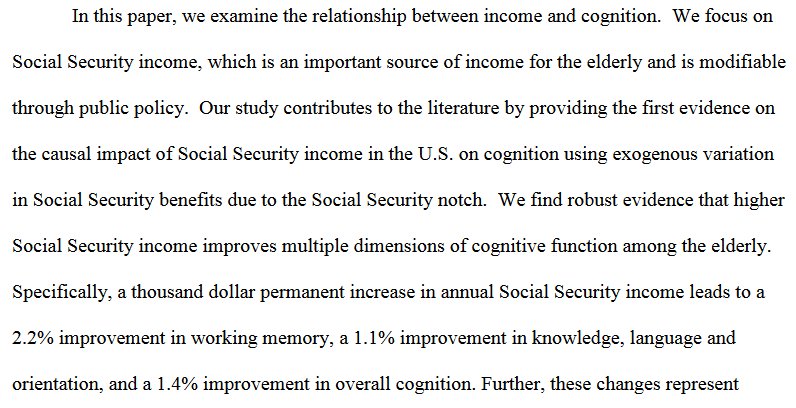
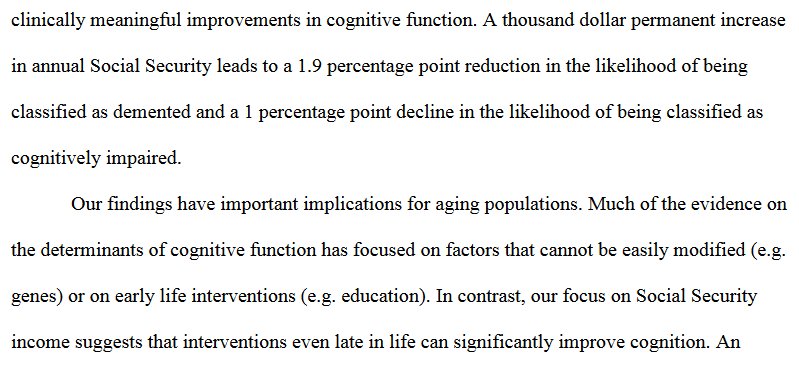

Aside from health costs, basic income also reduces the costs of crime. In Namibia's UBI experiment, overall crime rates were reduced by >40%.
How much does crime cost the US? It's been estimated as exceeding $1 trillion per year (6% of GDP).
#BasicIncome bignam.org/Publications/B…

How much does crime cost the US? It's been estimated as exceeding $1 trillion per year (6% of GDP).
#BasicIncome bignam.org/Publications/B…
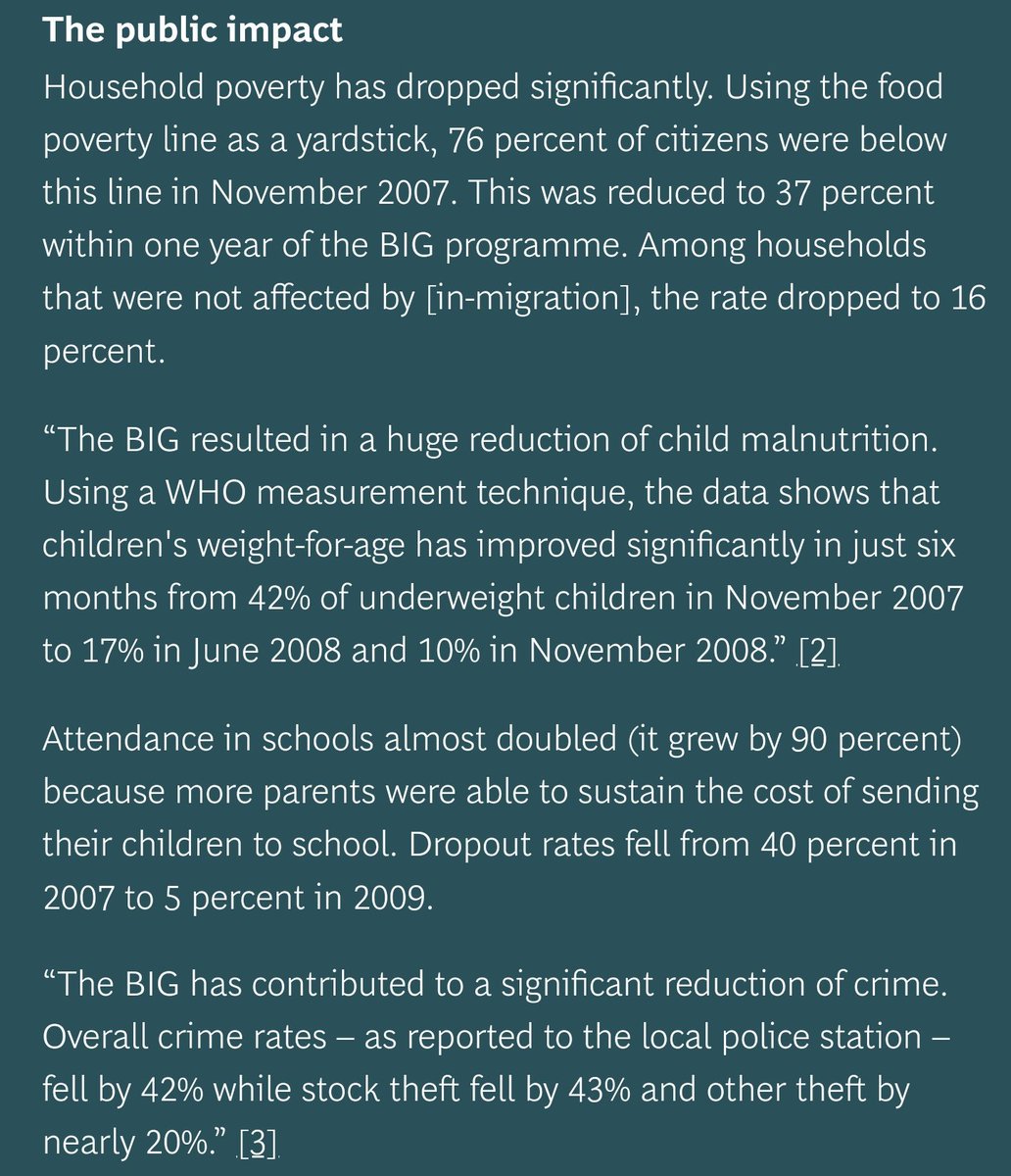
Not only was overall crime cut near in half as a result of the UBI experiment in Namibia, but poaching (aka illegal hunting) was reduced by 95%. Some crimes are done far more out of desperation than others. This seems to indicate that among those is hunting animals to extinction. 
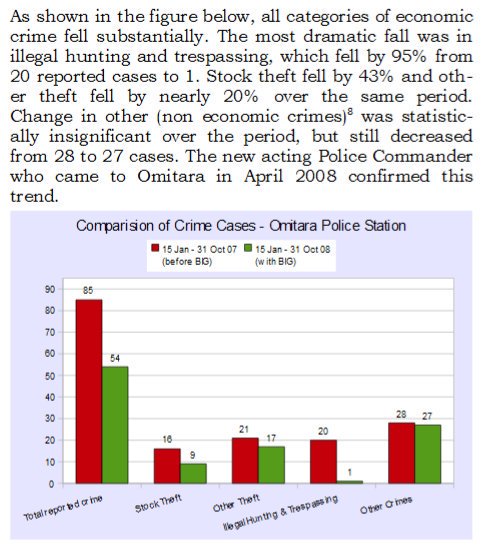
A commonly expressed concern about UBI is how it would affect rents, and yet aside from enabling greater geographic mobility from high CoL areas to lower CoL areas, one of the findings from the '70s AIMEs was a surprising increase in home ownership rates. This would reduce rents. 
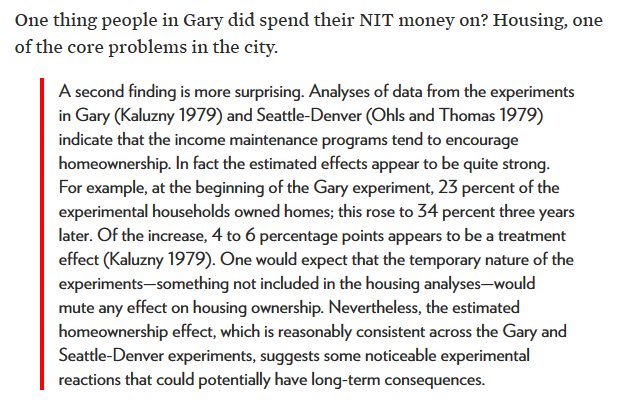
It's the simple choices people make in UBI experiments like eating more fruits & veggies that reveal how a great deal of our existing problems stem from a lack of choices.
Poverty is a poverty of choices created by an imposed lack of access to resources.
books.google.com/books?id=XDtOB…

Poverty is a poverty of choices created by an imposed lack of access to resources.
books.google.com/books?id=XDtOB…
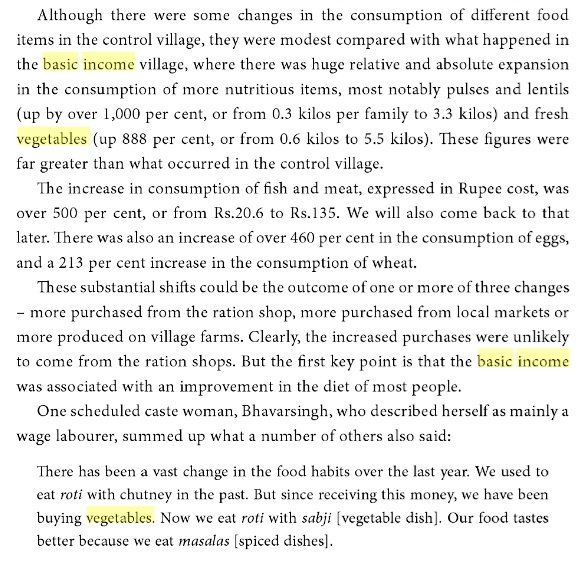
Another one of the most common observed effects of unconditional cash is people using it to get out of debt, increase their savings, and to avoid debt in the first place. Because of this, one of the only groups to hate #BasicIncome pilots is moneylenders.
medium.com/basic-income/p…


medium.com/basic-income/p…
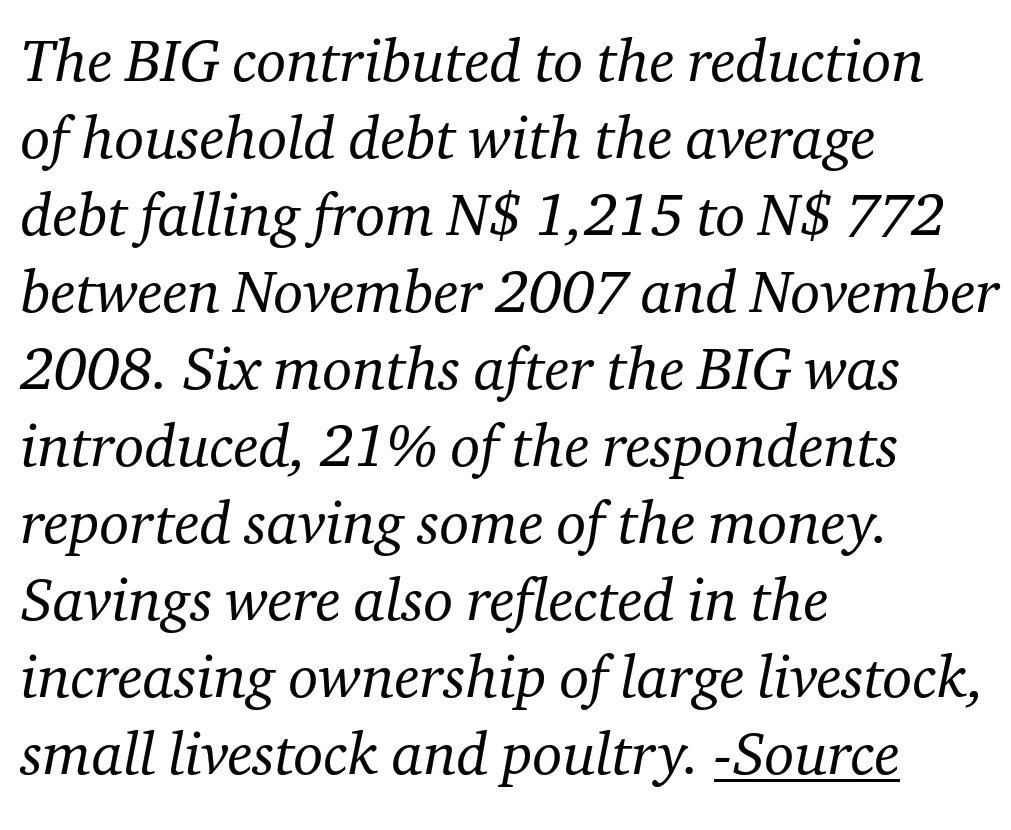

One of the observed effects of UBI is even increased voter turnouts. Kids raised in below median income households whose incomes were increased by around $7k now vote at higher rates (8-20 percentage points) as adults.
#BasicIncome #GoVote #ElectionDay brookings.edu/blog/up-front/…

#BasicIncome #GoVote #ElectionDay brookings.edu/blog/up-front/…
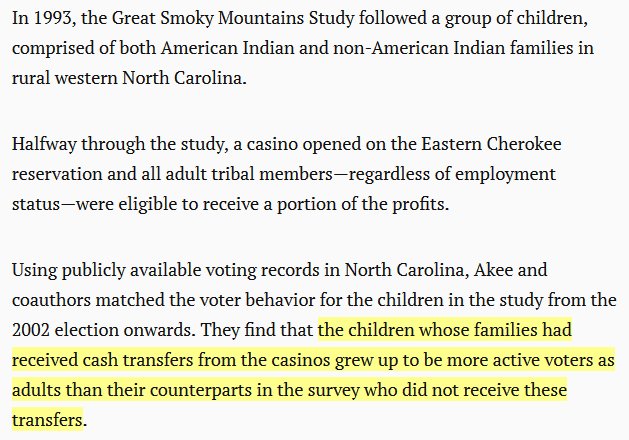
Perhaps the most economically profound effect of unconditional basic income is its effect on the entrepreneurial spirit. New businesses sprout up like never before. There appears to be an innate desire to employ oneself, to create something of one's own.
evonomics.com/universal-basi…

evonomics.com/universal-basi…
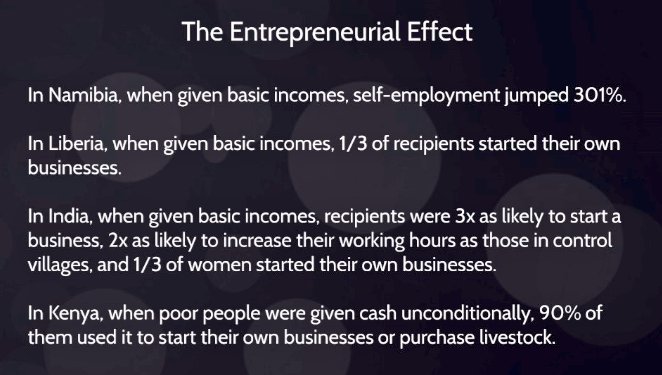
After 1000+ homes were destroyed by fire, basic income resulted in a faster recovery. Recipients even ended up with more savings than most Americans have and were thus better prepared for future disasters. Cash was over 2x more helpful than donated items.
csw.utk.edu/research/econo…


csw.utk.edu/research/econo…
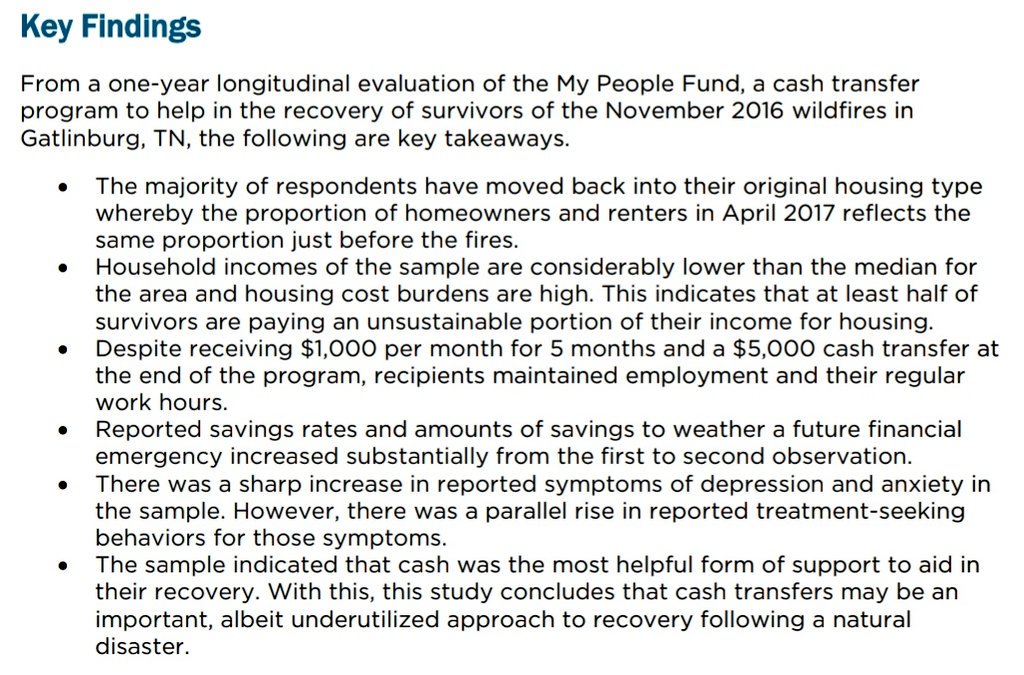

Climate change disasters also lead to lowered aspirations among the victims which lead to declines in future-oriented investments & behaviors. On a grand scale this hurts all of us, but basic income has also been shown to vaccinate against such declines.
sciencedirect.com/science/articl…

sciencedirect.com/science/articl…
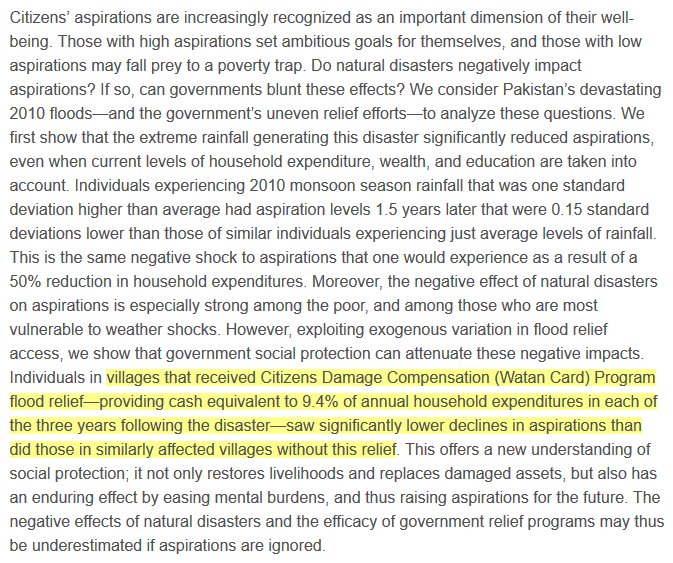
How insufficient income impacts behavior is one of the most important justifications for unconditional basic income. Economic insecurity is like an app running in the background taking up resources. Freeing those resources is similar to boosting IQ 13pts.
science.sciencemag.org/content/341/61…


science.sciencemag.org/content/341/61…
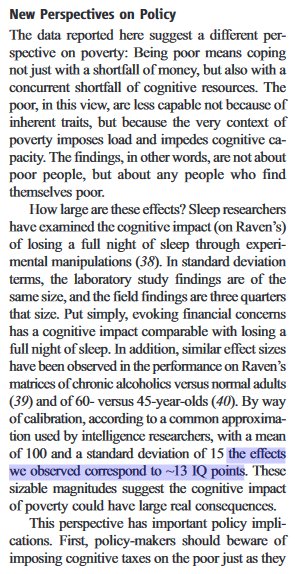
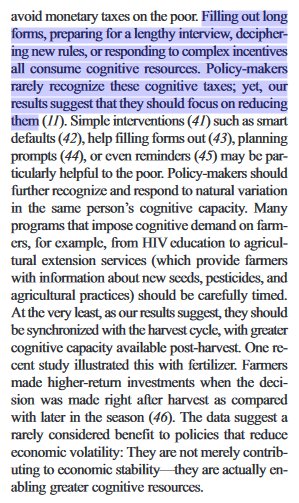
The most basic effect of basic income is that people spend it. It goes right into local economies & works it's way back to the top before being transferred back down again. UBI is a pump for a circulatory system where each $1 multiplies into more than $1.
medium.com/basic-income/t…


medium.com/basic-income/t…
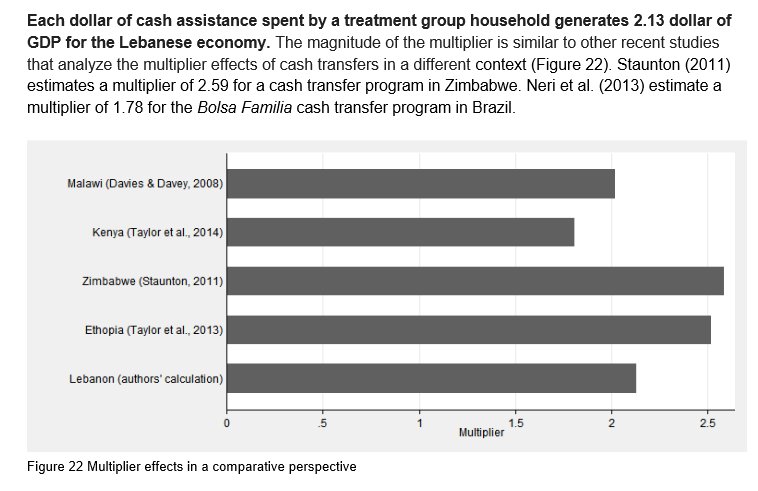

New analysis of the effects of the Earned Income Tax Credit (EITC)—where our incomes are boosted through the tax system—provides further evidence of just how much sense it makes to invest in each other, and how the ROI can be so great, it is self-funding.
https://twitter.com/scottsantens/status/1064557536790093824
A recent ep of the Basic Income Podcast included another piece of UBI evidence learned form researching sovereign nation dividends, and that's better more reliable transportation, especially in rural areas where public transportation doesn't really exist.
open.spotify.com/episode/51OpTq…

open.spotify.com/episode/51OpTq…
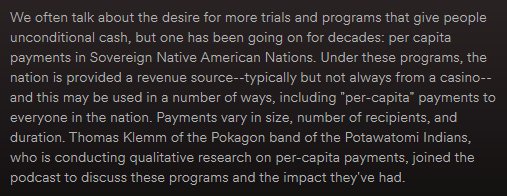
The closest thing in the world to UBI has existed in Alaska since 1982 where everyone, rich or poor, young or old, receives yearly dividends as their share of AK's wealth. You may think people would work slightly less but instead PT work increased by 17%.
papers.ssrn.com/sol3/papers.cf…

papers.ssrn.com/sol3/papers.cf…
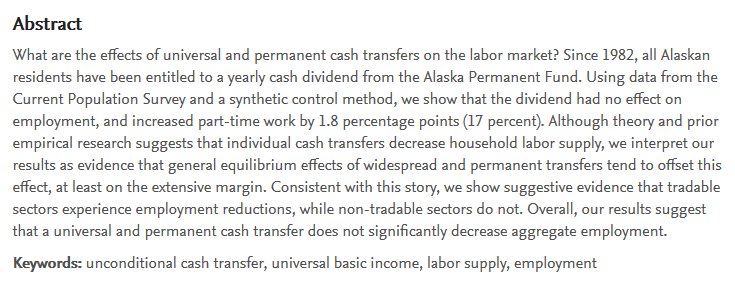
Another close example to UBI in the real world is Iran's cash transfer program that at one point was providing 96% of the country the same monthly check. The result? No effect on full-time work, but a small increase in self-employment & female-employment.
erf.org.eg/wp-content/upl…

erf.org.eg/wp-content/upl…

For those concerned about UBI just pointlessly leading to rising prices, a new study of 650 villages in East Africa equivalent to 15% of GDP there being distributed directly as cash, is revealing this concern is unsupported by evidence.
#BasicIncome phenomenalworld.org/guaranteed-inc…

#BasicIncome phenomenalworld.org/guaranteed-inc…
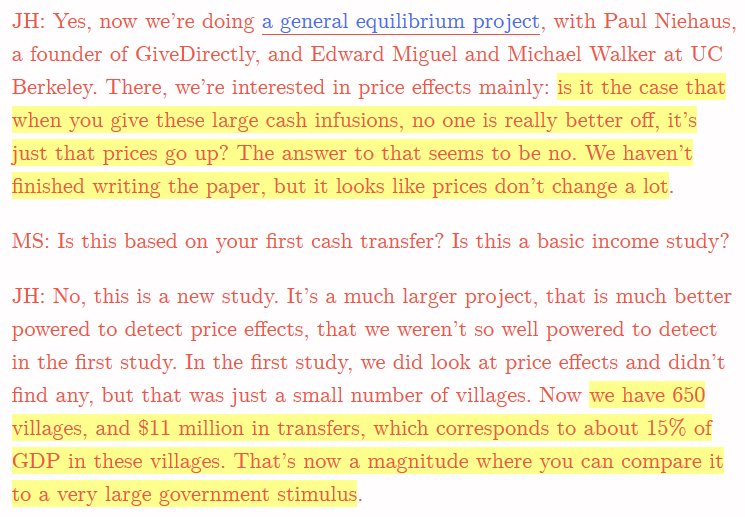
Trust in each other is a fundamental component of a functioning society. The results are still preliminary and await the data from year two of the experiment, but new results from Finland show that basic income increases overall trust within society.
https://twitter.com/scottsantens/status/1093969323683704835
New research out of Alaska reveals that their partial basic income distributed annually as a dividend decreases crime in the two weeks immediately following the distribution. Property crimes decrease by about 8.5% because people have enough resources.
alaskapublic.org/2019/02/12/ask…

alaskapublic.org/2019/02/12/ask…
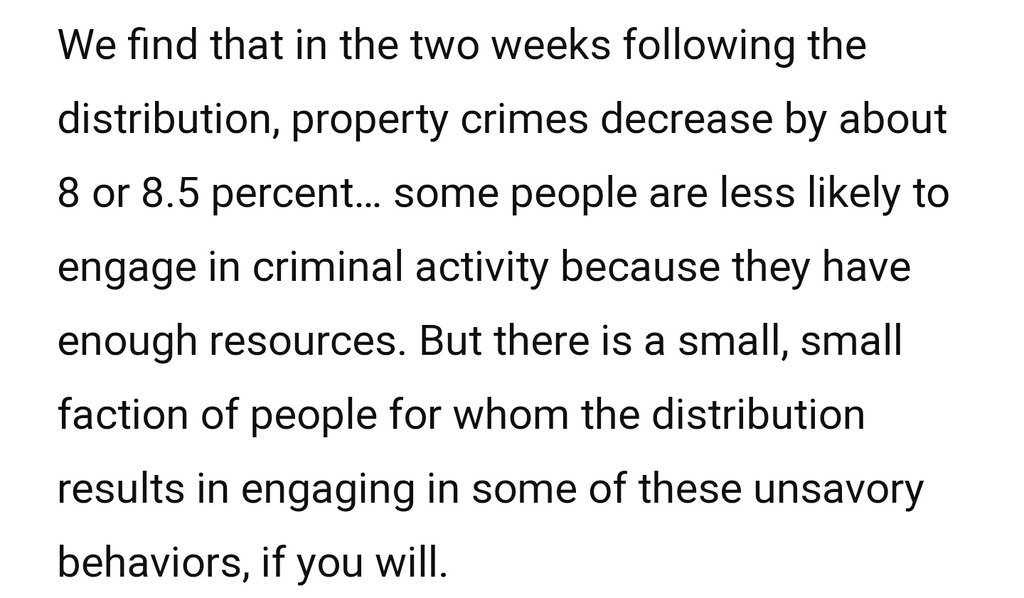
New research out of Alaska reveals very large effects of #BasicIncome on obesity reduction. A $1,000 dividend (1/12 of a $1k/mo UBI) reduces the odds of a child growing up to be obese by 4.5%.
The annual cost of obesity in the US is around $200 billion.
alaskapublic.org/2019/02/12/ask…

The annual cost of obesity in the US is around $200 billion.
alaskapublic.org/2019/02/12/ask…
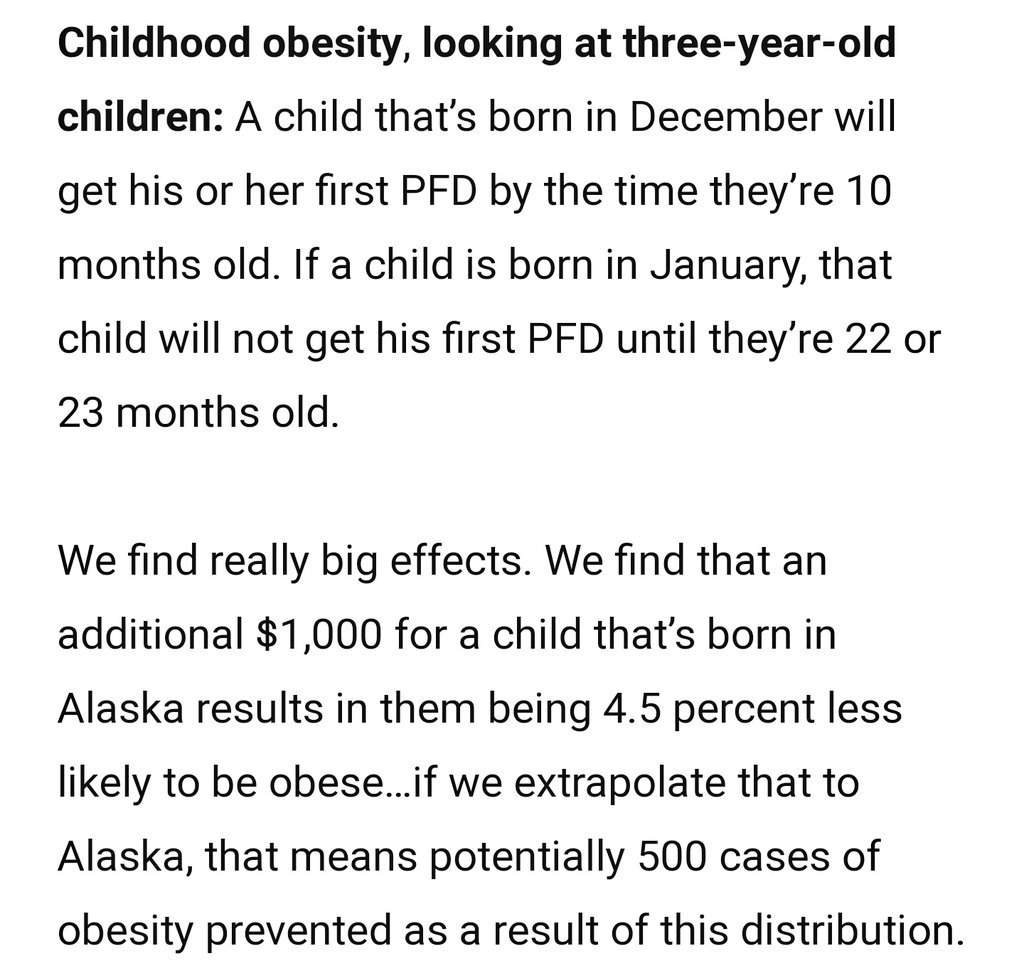
New evidence supports existing evidence that unconditional cash reduces intimate partner violence, both physical & sexual. The effects also spread to the surrounding community to reduce violence in people who didn't even receive it.
UBI cultivates PEACE.

UBI cultivates PEACE.
https://twitter.com/jhaushofer/status/1099896999464321024
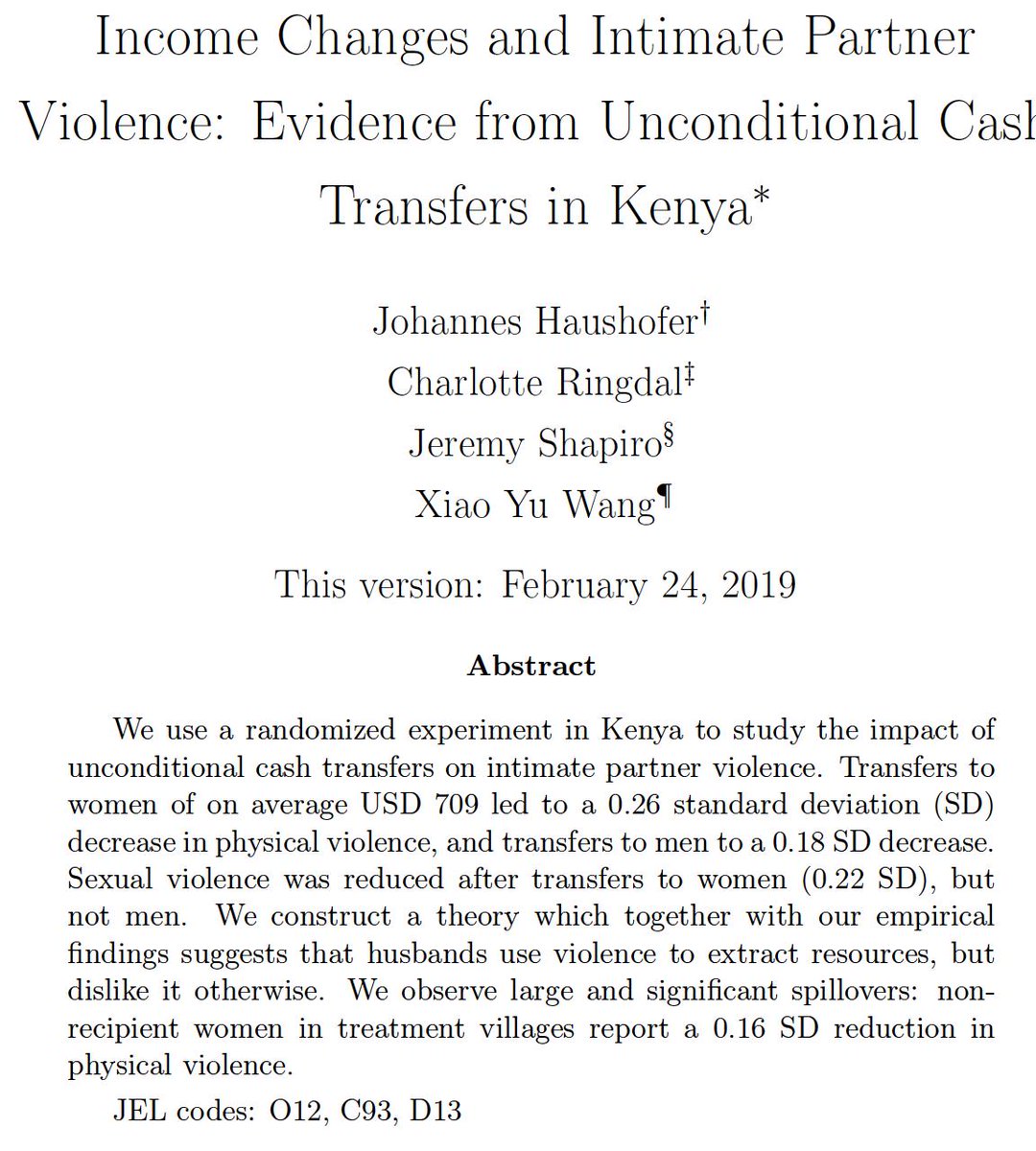
Based on evidence extracted from 165 studies of cash transfers, providing cash positively impacts monetary poverty; education; health and nutrition; savings, investment and production; with limited evidence for less work or higher birthrates.
#BasicIncome odi.org/publications/1…

#BasicIncome odi.org/publications/1…
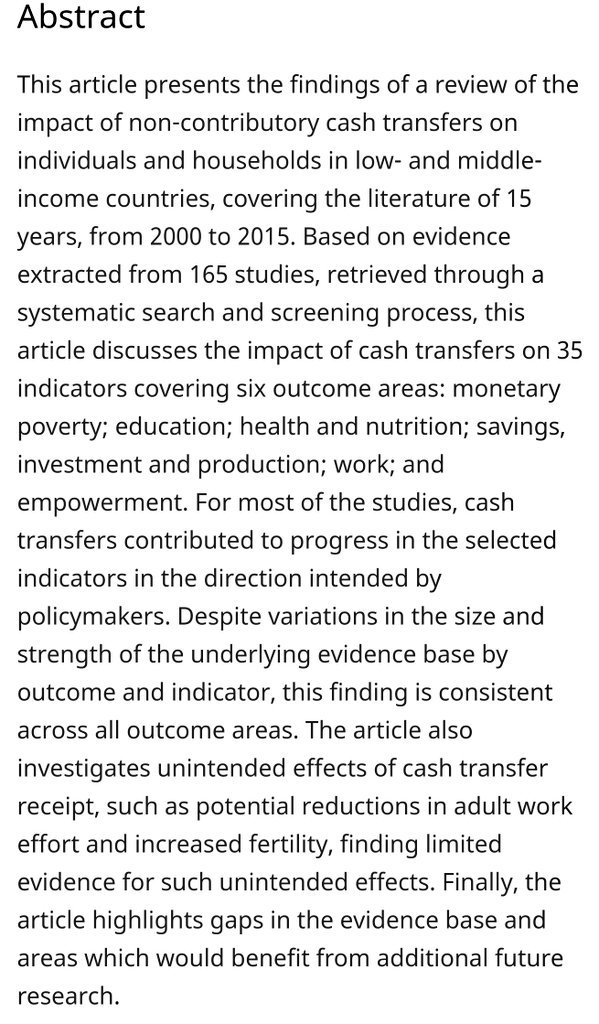
Some results from the Ontario Basic Income Pilot:
✔️88% had reduced stress & anxiety
✔️73% had reduced depression
✔️45% experienced fewer health problems
✔️17% needed less medication
✔️28% stopped relying on food banks
✔️32% went back to school
👇More👇
✔️88% had reduced stress & anxiety
✔️73% had reduced depression
✔️45% experienced fewer health problems
✔️17% needed less medication
✔️28% stopped relying on food banks
✔️32% went back to school
👇More👇
https://twitter.com/scottsantens/status/1102621264039022595
Compared to a control group, the number of women who reported being kicked, dragged, or beaten by their husbands fell by 51% in households where women received unconditional basic income. Incidences of forced sexual acts also declined by as much as 66%.
fastcompany.com/90315666/how-a…

fastcompany.com/90315666/how-a…
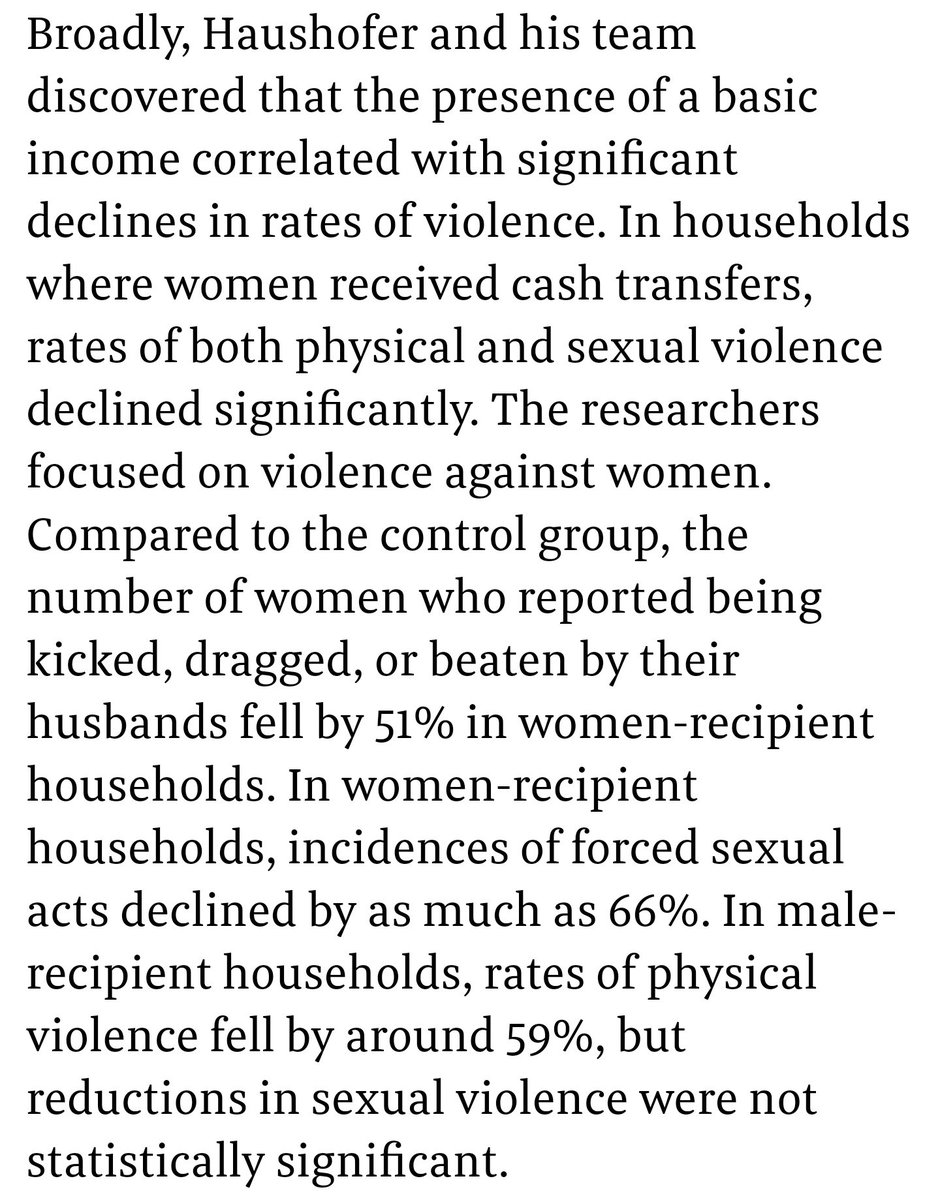
Using cortisol sampling, @Give_Directly has found that unconditional #basicincome significantly lowers cortisol levels when compared to UBI non-recipients, which suggests a causal effect of poverty & insecurity alleviation on reductions in stress levels.
mironline.ca/why-universal-…

mironline.ca/why-universal-…
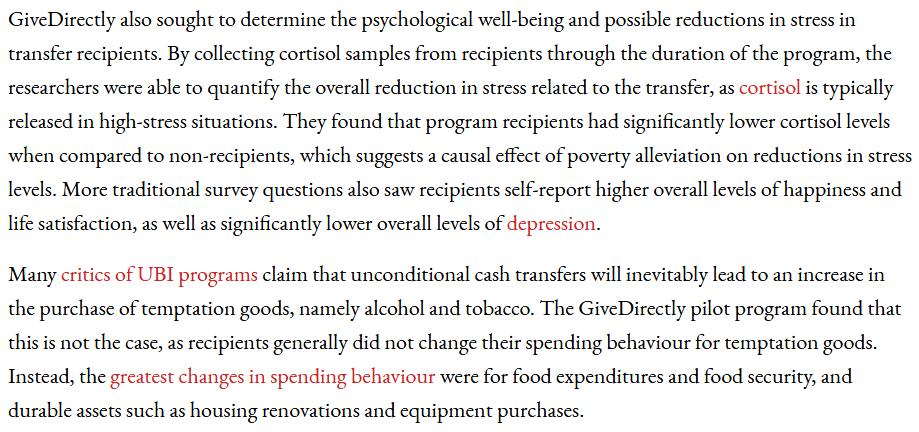
Lack of sufficient income now shortens life by as much as 15 years between the life expectancy of the bottom 1% and top 1%. The Mothers Pension program (1911-1935) was our first welfare program. Turns out that looking back on it, sons lived 1 year longer.
aeaweb.org/articles?id=10…


aeaweb.org/articles?id=10…

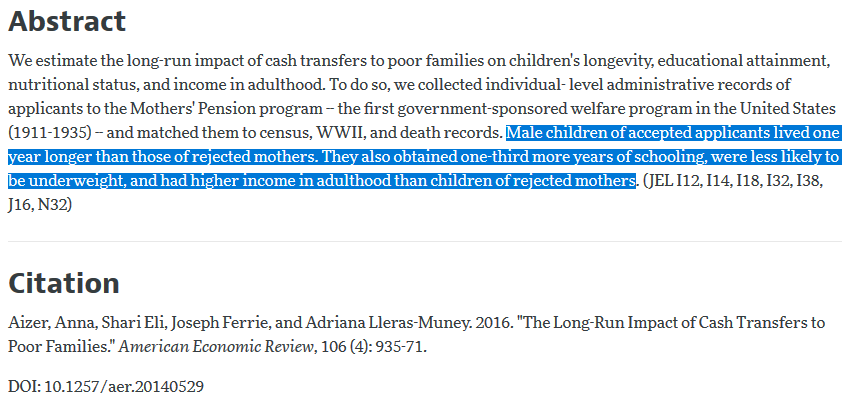
New evidence in support of universal basic income from Alaska thanks to fresh analysis by @R_Dorsett. The higher the UBI amount, the less property crime occurs, and excluding criminals from UBI has no deterrent effect on crime.
#YangGang #BasicIncome richarddorsett.com/wp-content/upl…

#YangGang #BasicIncome richarddorsett.com/wp-content/upl…
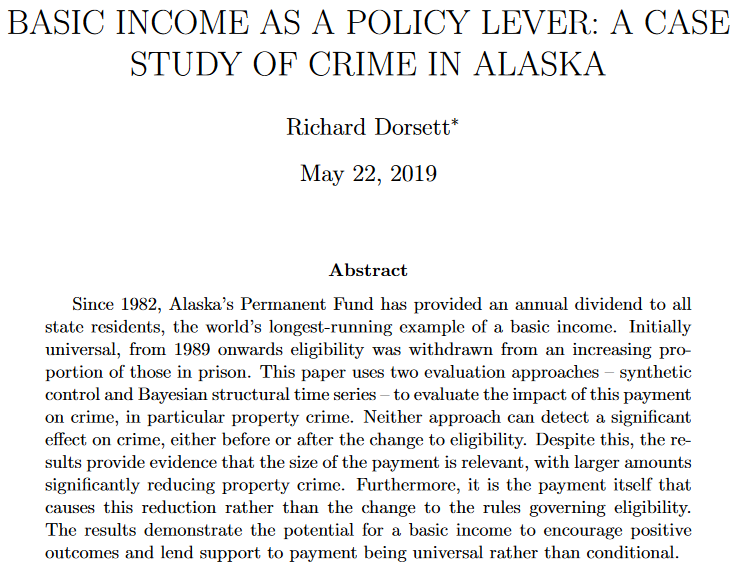
Here is some fascinating new UBI-supporting evidence out of Pakistan. Inequality interacts with cash transfers to increase support for government among recipients and greatly decrease support for government among those excluded.
Universalism > Targeting
ebrary.ifpri.org/utils/getfile/…



Universalism > Targeting
ebrary.ifpri.org/utils/getfile/…

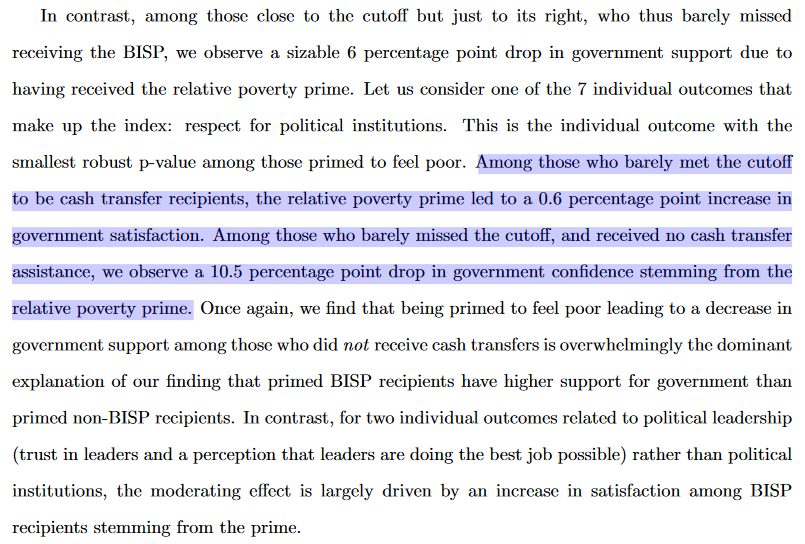
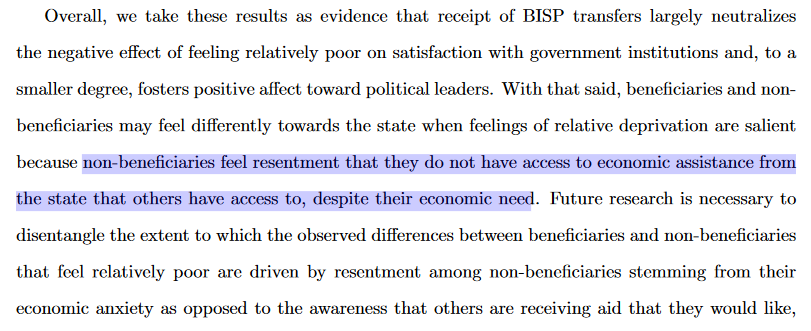
95% of recipients of unconditional cash in Texas, and 80% in Puerto Rico, preferred it to in-kind benefits after their natural disasters. The cash enabled a much greater meeting of highly diverse needs and also prevented debt and job loss.
#ClimateChange givedirectly.org/wp-content/upl…




#ClimateChange givedirectly.org/wp-content/upl…

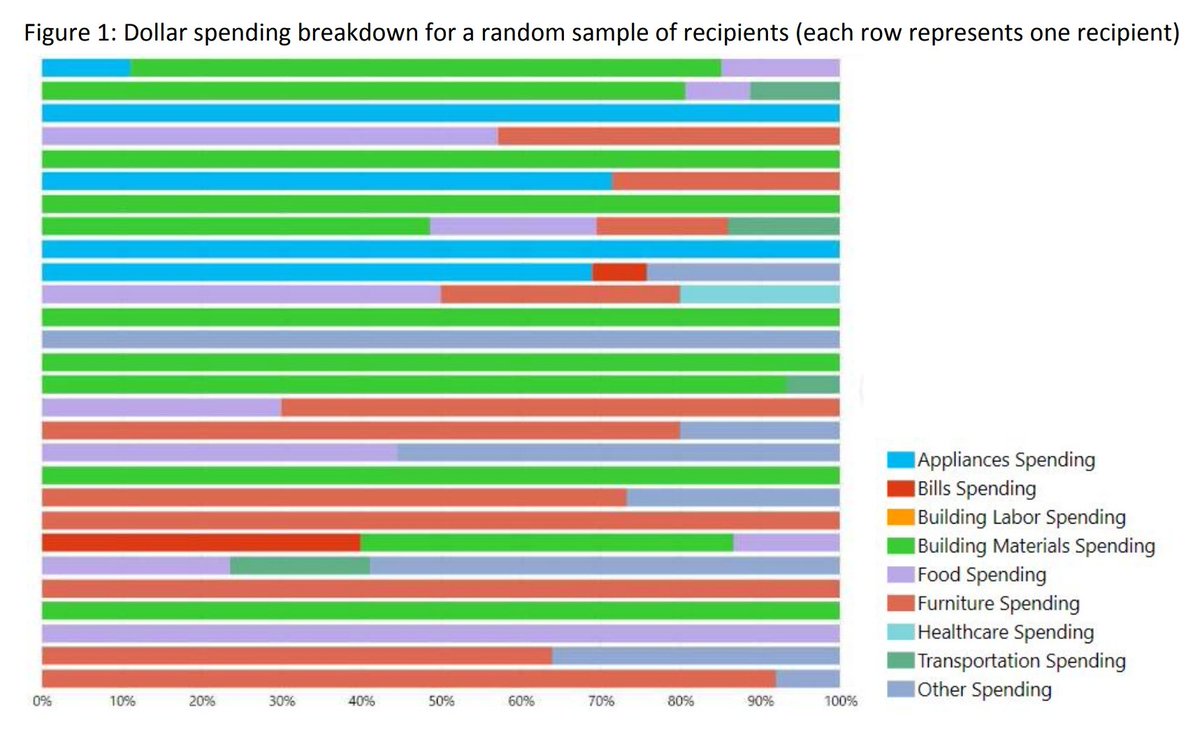
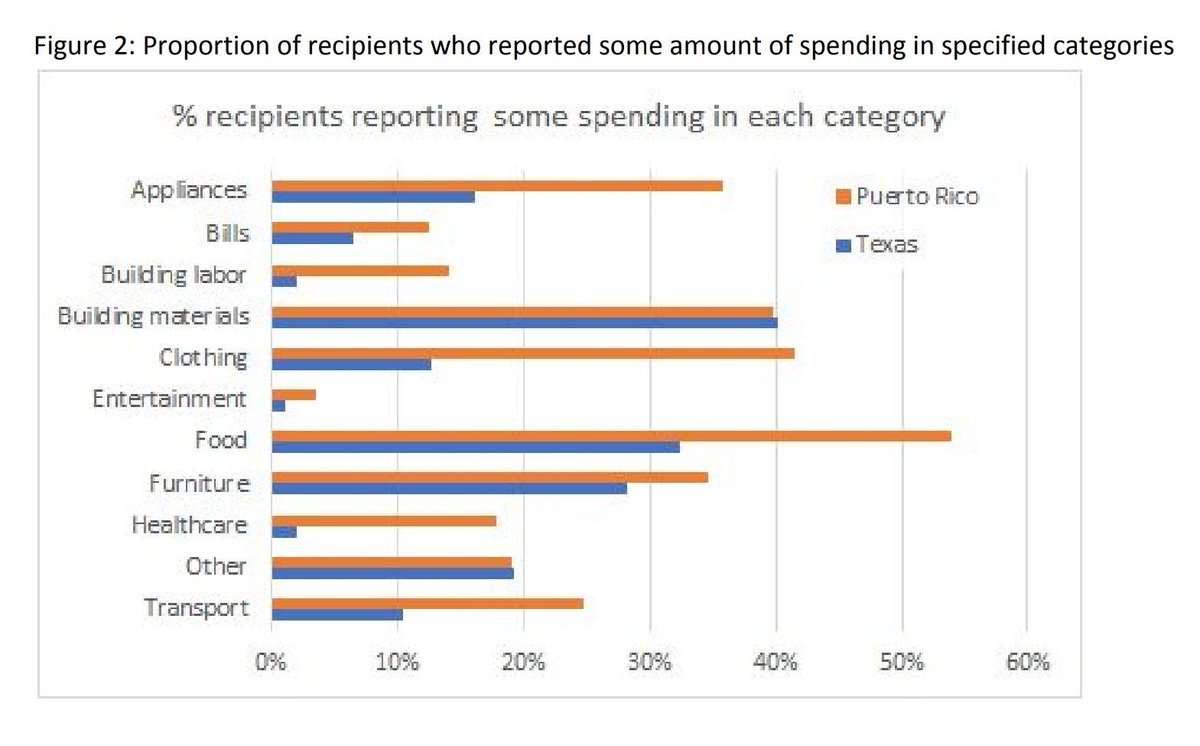
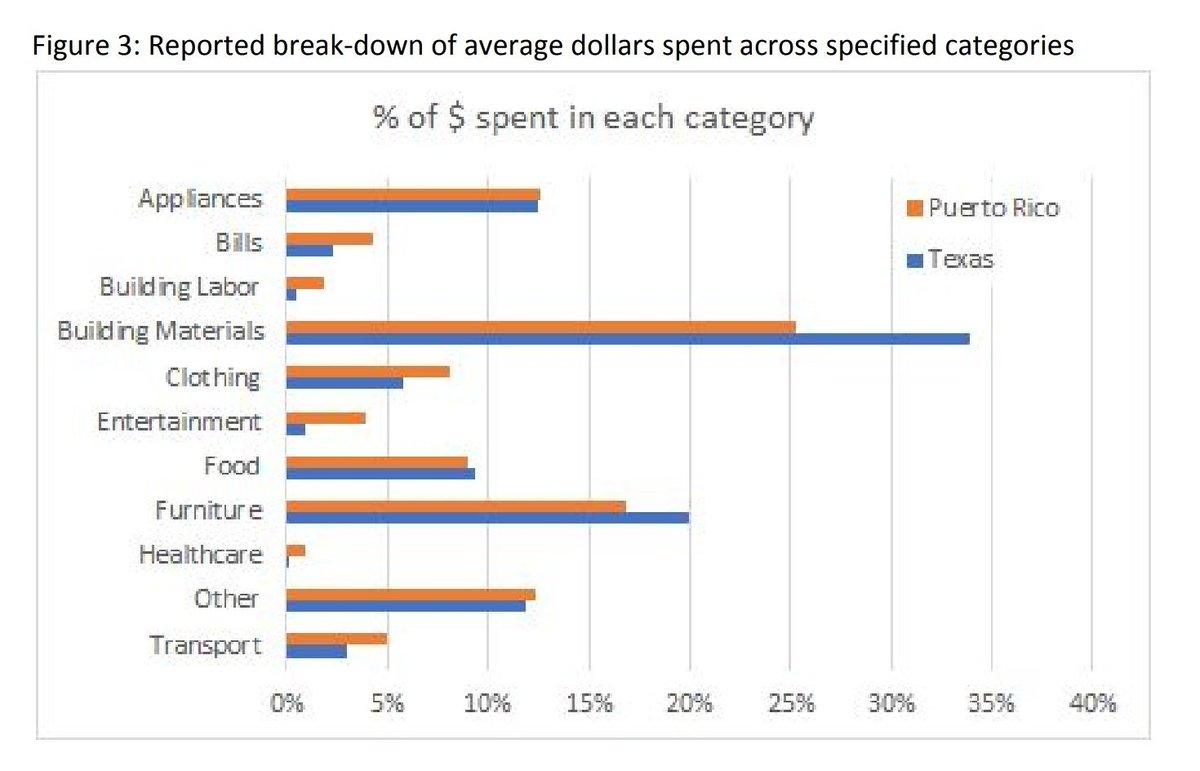
There's huge new evidence for unconditional basic income (UBI) thanks to a new study of Canada's Child Benefit where 1.1 million families start each month with over $600. Returning $71 billion to 67% of families has grown Canada's economy by $139 billion.
ubiworks.ca/canada-child-b…



ubiworks.ca/canada-child-b…

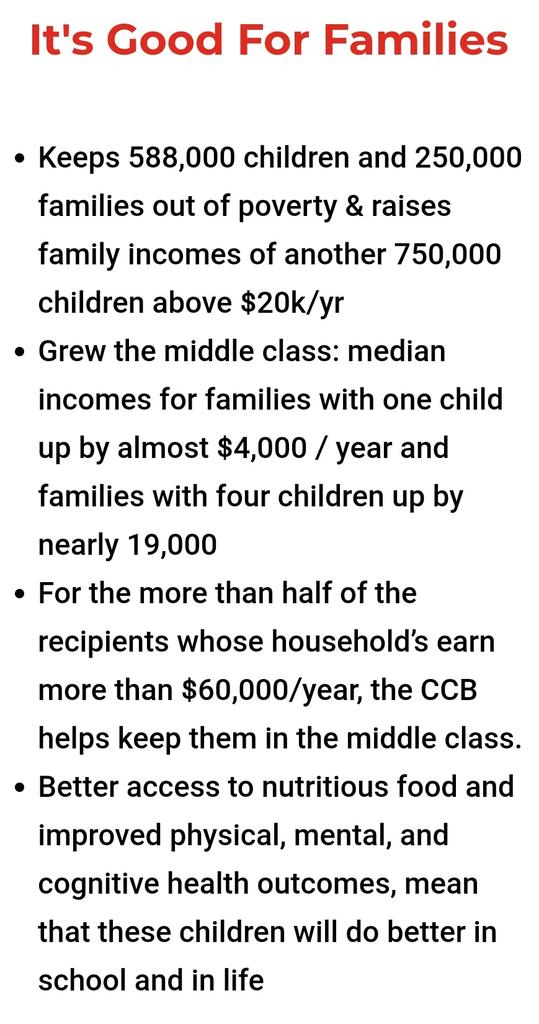

In what is among the first ever RCTs to evaluate the macroeconomic effects of cash transfers, a large unconditional cash grant by @Give_Directly equivalent to 15% of GDP increased prices by less than 1%, and grew local economies by almost $3 per every $1.
emiguel.econ.berkeley.edu/assets/miguel_…



emiguel.econ.berkeley.edu/assets/miguel_…
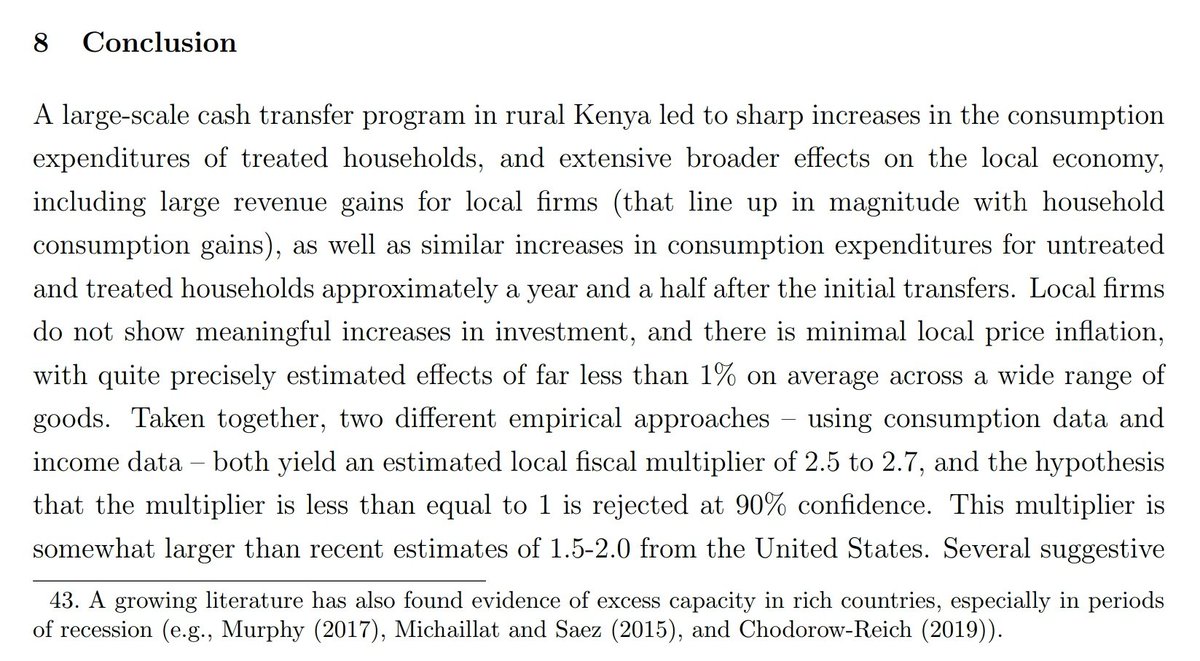


A novel analysis of Brazil's cash transfer program reveals that the income counterintuitively results in people remaining employed for 7-10% longer than non-recipients. Basically the stable source of money helps maintain employment.
#BasicIncome #YangGang scielo.br/scielo.php?scr…

#BasicIncome #YangGang scielo.br/scielo.php?scr…
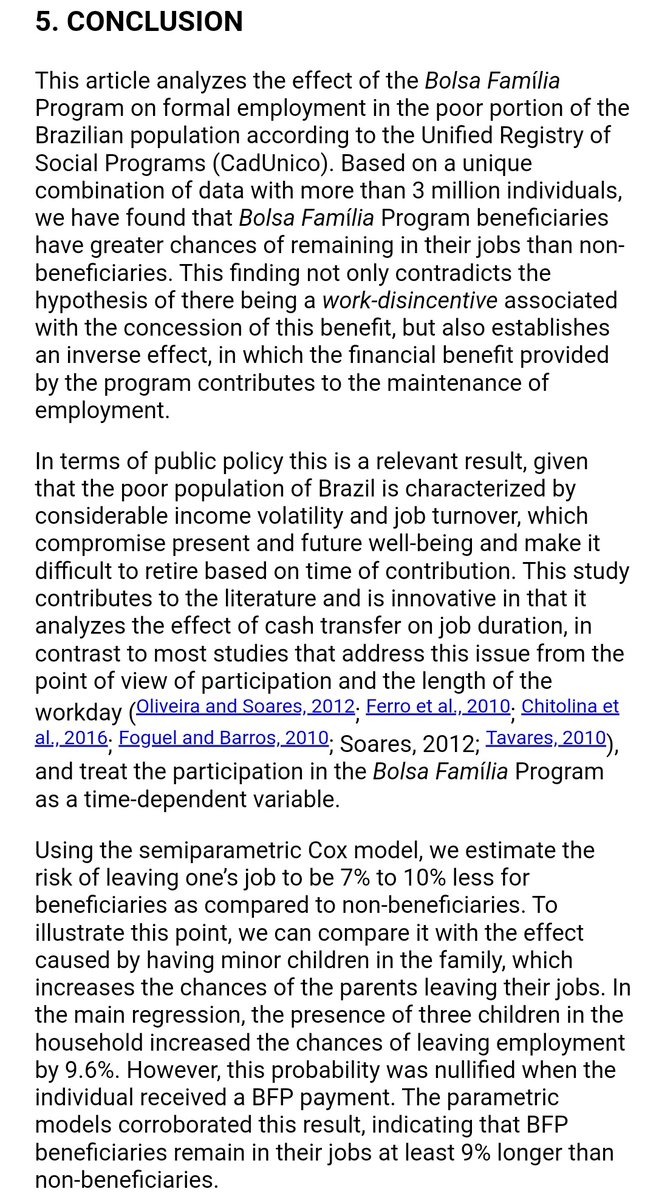
20 African-American mothers were provided a #BasicIncome of $1,000/mo for one year. Here's the results:
✅More home-cooked meals
✅Increased HS completion rates
✅Increased home ownership
✅Reduced predatory debt
✅Less worry
✅More hope
Testimonials:

✅More home-cooked meals
✅Increased HS completion rates
✅Increased home ownership
✅Reduced predatory debt
✅Less worry
✅More hope
Testimonials:
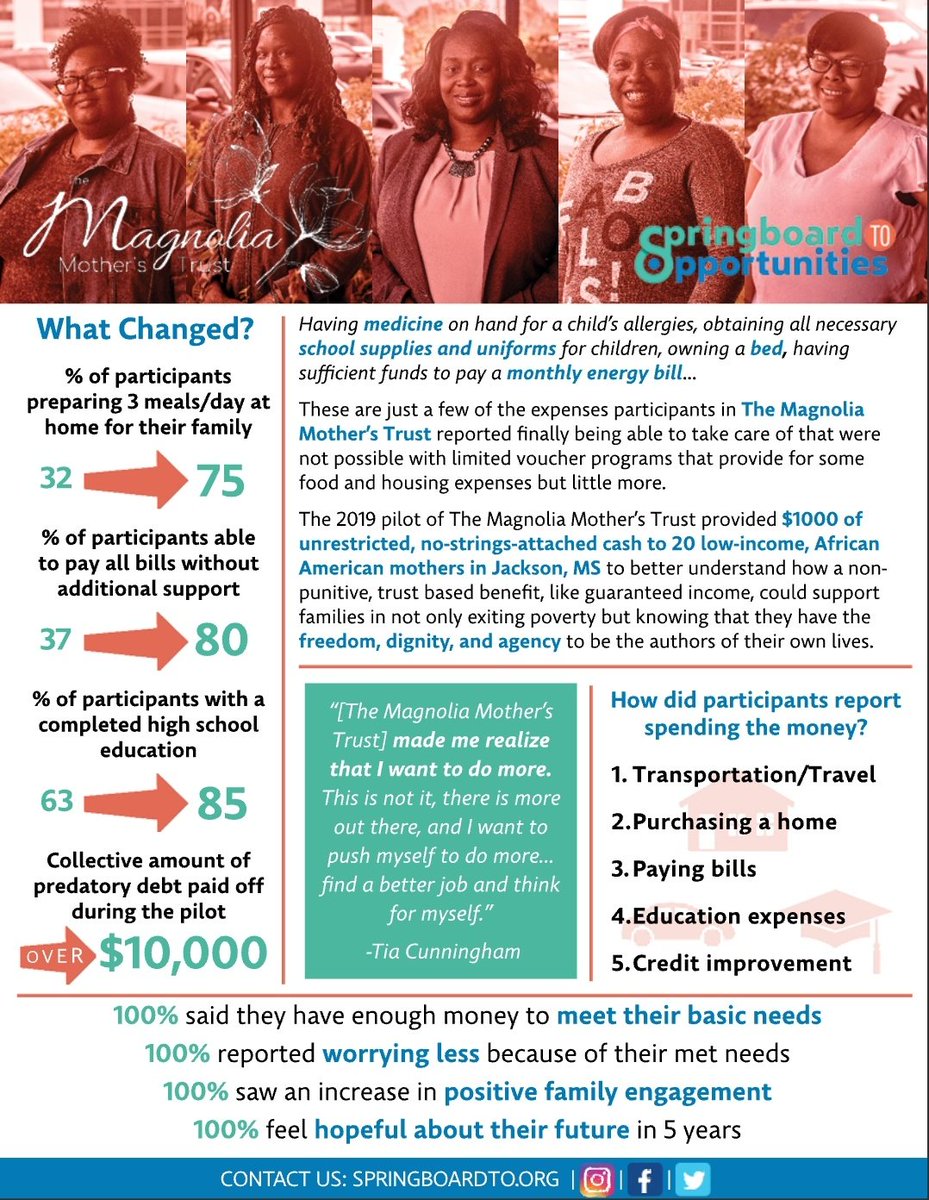
Canada’s experiment exploring a basic income guarantee in Ontario may have tragically been cut short, but an attempt to salvage at least some knowledge from the pilot has resulted in yet another pile of results in support of the efficacy of basic income.
https://twitter.com/scottsantens/status/1235292174775963656?s=19
Despite what you may have heard to the contrary, Finland's experiment was yet another success, with the final results now finally published.
Days employed: 8%⬆️
Life satisfaction: ⬆️
Mental health: ⬆️
Trust: ⬆️
Summary:
Video: kela.fi/web/en/news-ar…

Days employed: 8%⬆️
Life satisfaction: ⬆️
Mental health: ⬆️
Trust: ⬆️
Summary:
Video: kela.fi/web/en/news-ar…
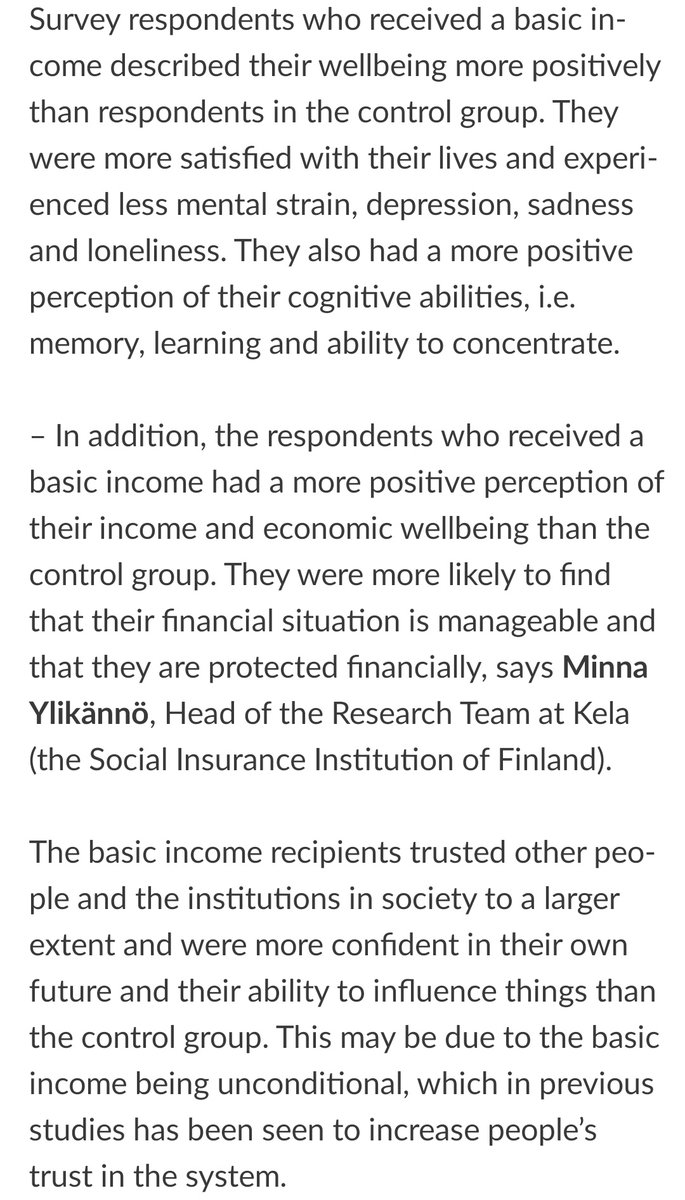
Cash to reduce poverty in Indonesia led to a 30% drop in forest loss, even though the income came with no conservation conditions. The effect was larger in villages where more people got income (like UBI), and where the income lasted longer (like UBI).
advances.sciencemag.org/content/6/24/e…

advances.sciencemag.org/content/6/24/e…
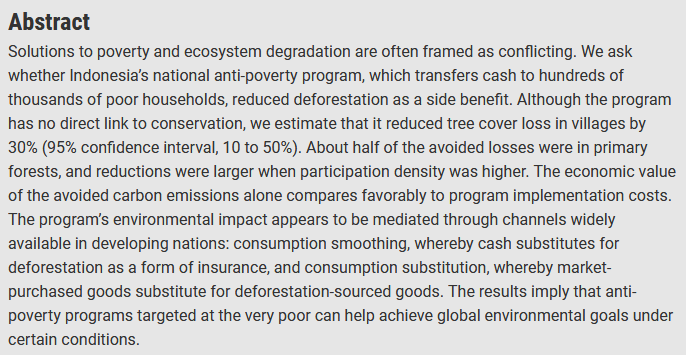
Unconditional income has been shown to improve the mental health of those in poverty. Improvements in physical health, such as reduced symptoms of illness and more physical activity, translate into improved mental health, which also improves productivity.
sciencedirect.com/science/articl…

sciencedirect.com/science/articl…
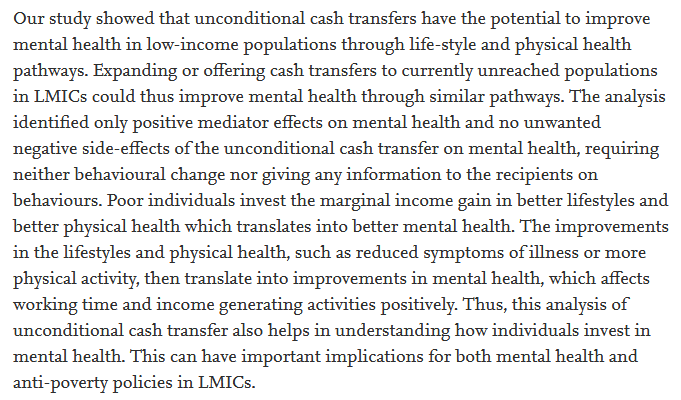
New analysis by @DavidCalnitsky + @pilargonalons of Canada's Mincome experiment in the 1970s backs up @AOC's recent assertion that reducing poverty would reduce crime, because that's exactly what happened in Dauphin, Manitoba.
Overall crime dropped 15%.
sci-hub.tw/https://academ…




Overall crime dropped 15%.
sci-hub.tw/https://academ…
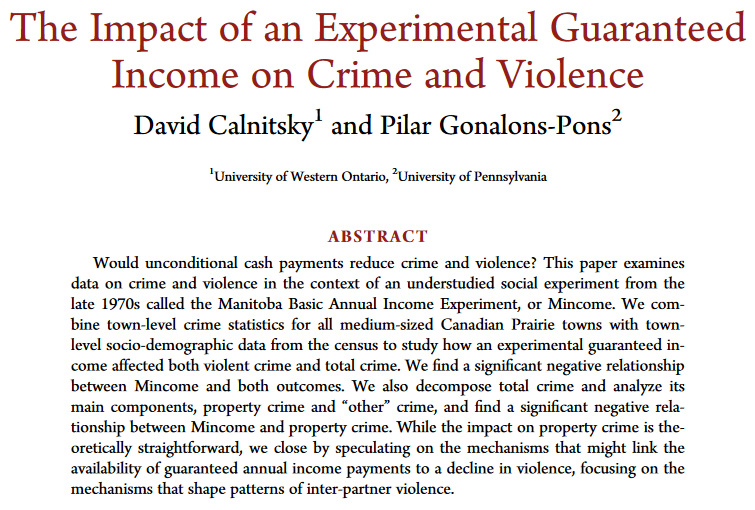
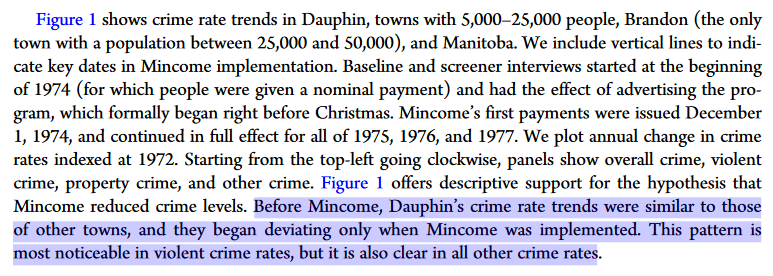
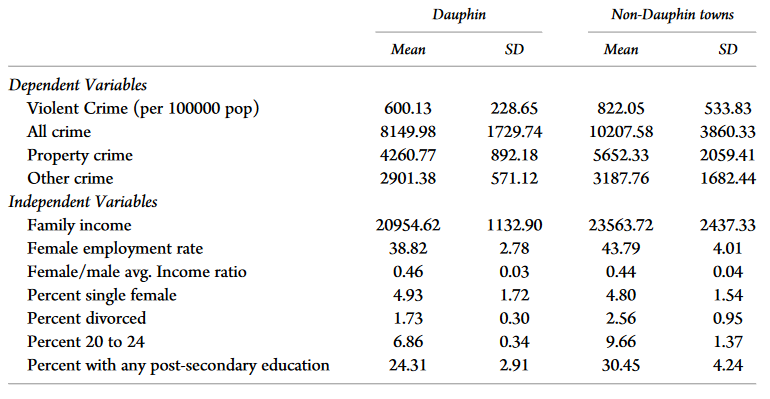
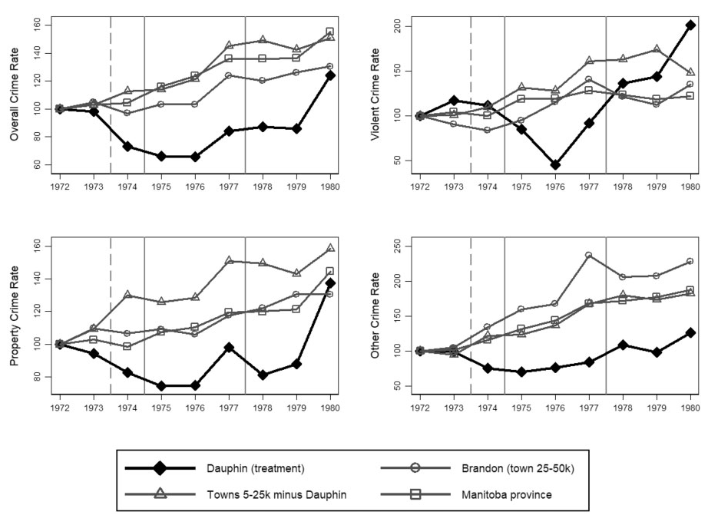
By looking at babies born just under and over the weight line that determines eligibility to receive SSI disability income, it's been observed that cash transfers of around $700/mo (avg in 2020 dollars) improves child outcomes and parenting behaviors.
nber.org/papers/w24913

nber.org/papers/w24913
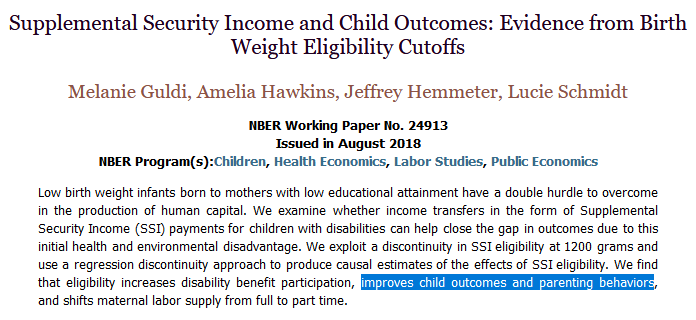
It's not new evidence, but a huge new review of the existing evidence finds no evidence of a significant reduction in labor supply with basic income, instead finding evidence that labor supply increases globally among adults, men and women, young and old.
preprints.org/manuscript/202…

preprints.org/manuscript/202…
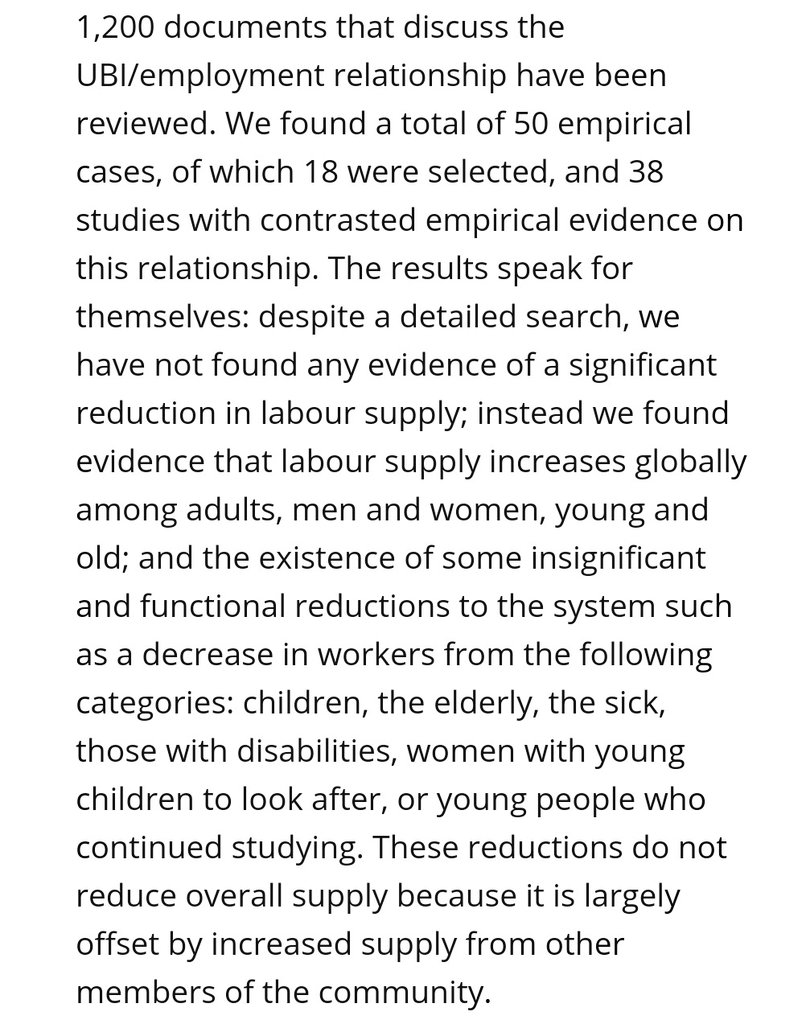
Because of an ongoing #UBI experiment that started before the pandemic, we now have evidence of what impact UBI would have had if already in place elsewhere. We'd be seeing less food insecurity, less depression, and we would have more hospital capacity.🏥
econweb.ucsd.edu/~pniehaus/pape…


econweb.ucsd.edu/~pniehaus/pape…
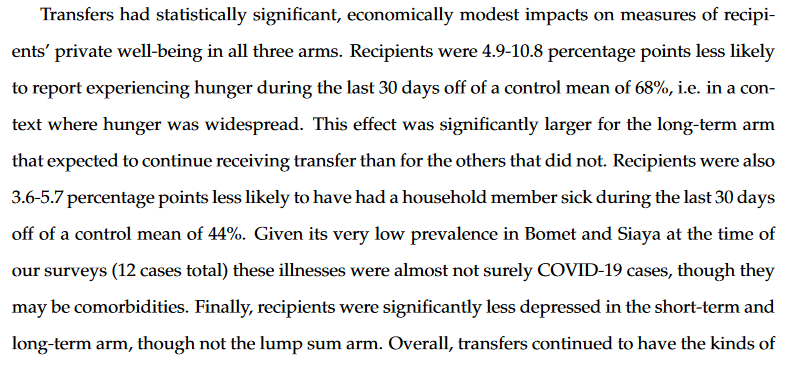
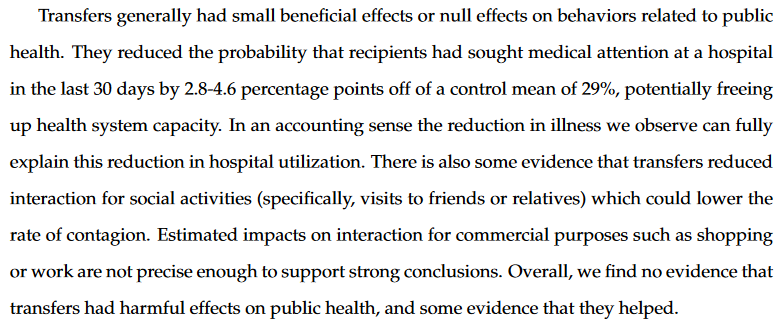
A 2018-19 experiment in Vancouver, BC provided $7500 unconditional cash to 50 homeless people. As a result they spent less time in shelters, saving the shelter system $8100 per person. Drug and alcohol use also went down 39%, plus food security improved.

https://twitter.com/scottsantens/status/1313941108628520961
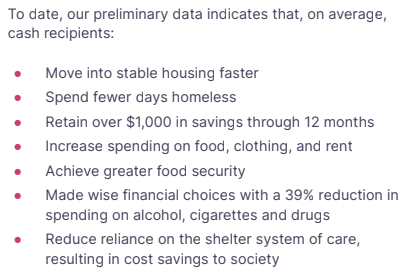
A 2018 study of cash giving in Rwanda found that households that got cash instead of standard aid saved 60% more, consumed 32% more, and expanded productive assets by 76% more. Diets improved, and so did children’s height, weight, and chances of survival.
bostonglobe.com/2020/10/17/opi…




bostonglobe.com/2020/10/17/opi…

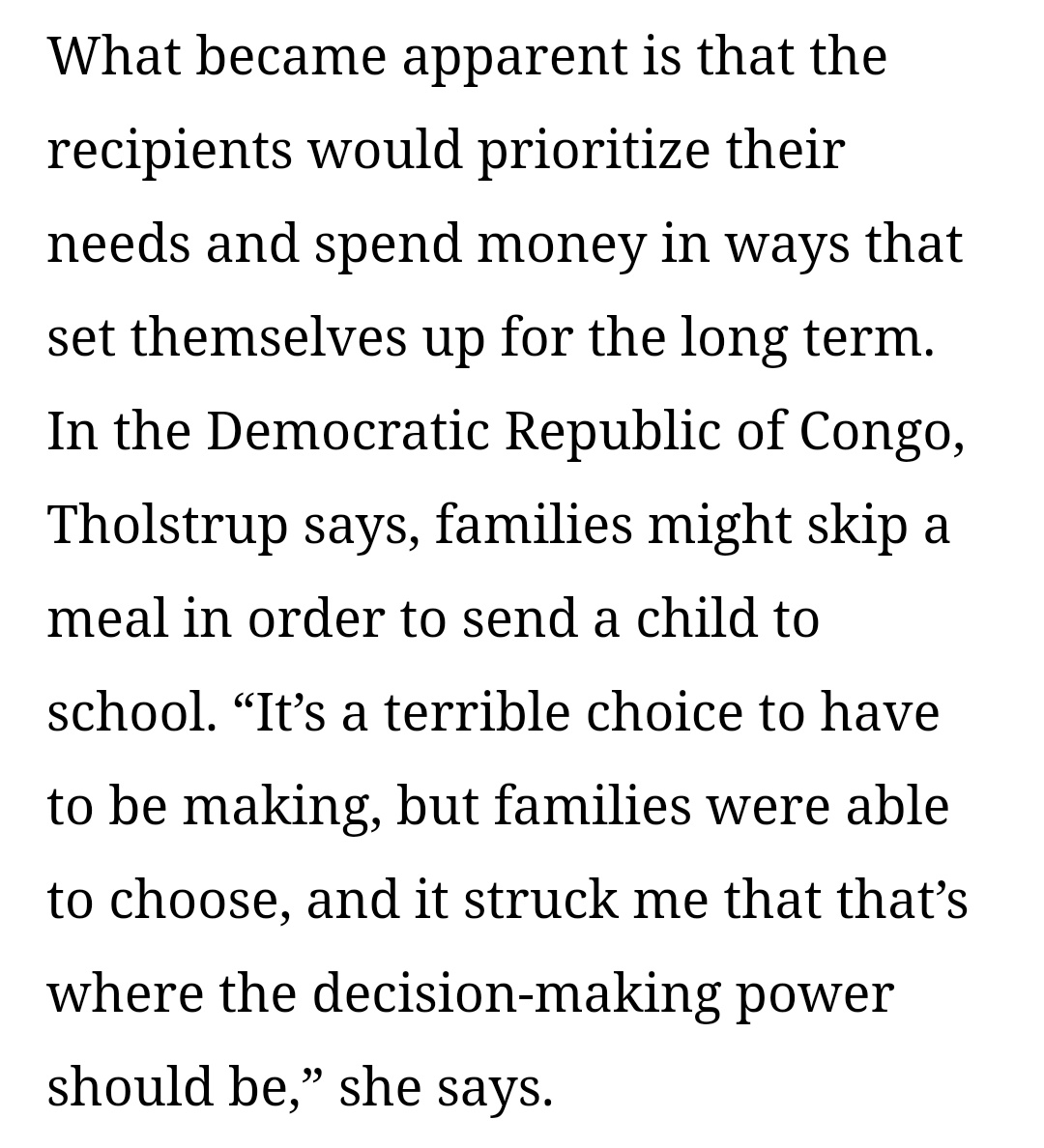
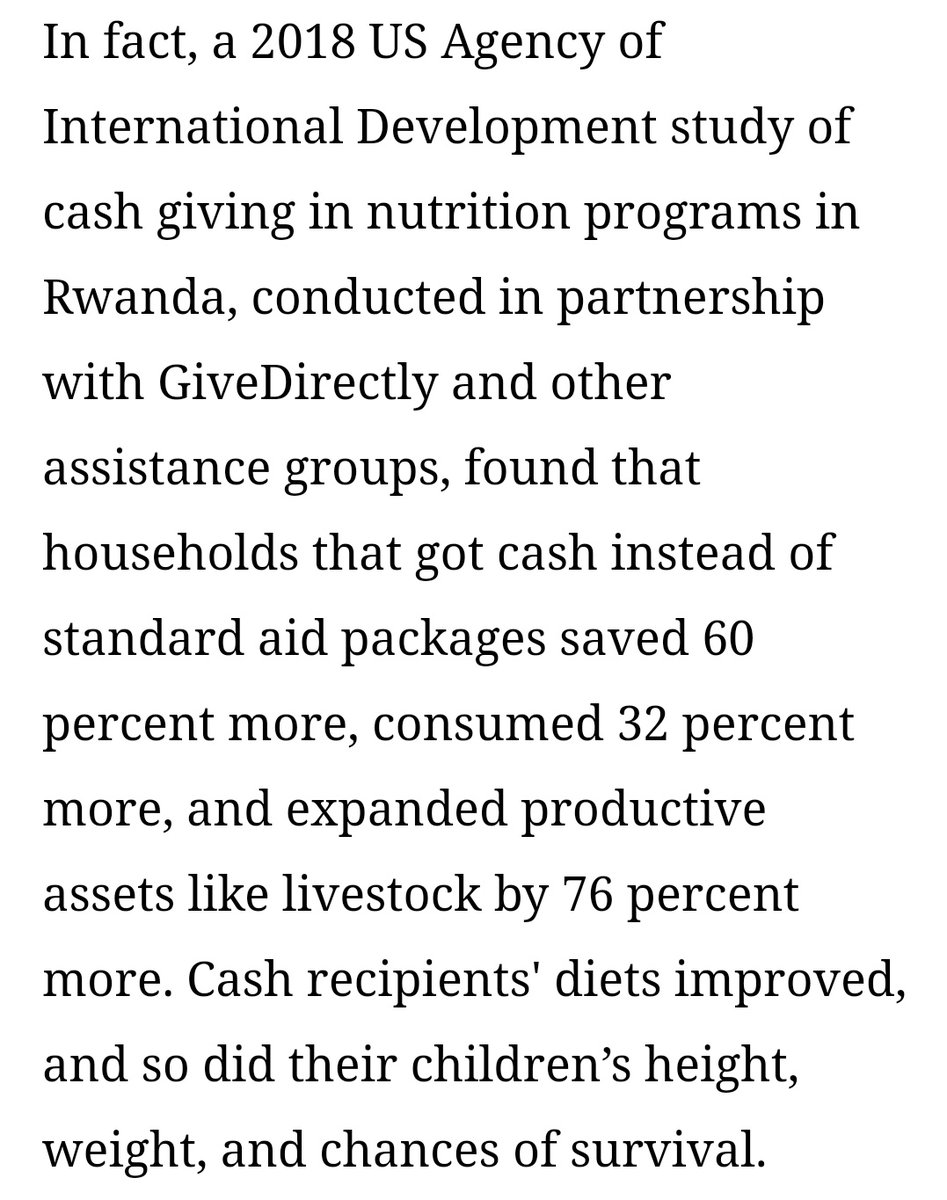
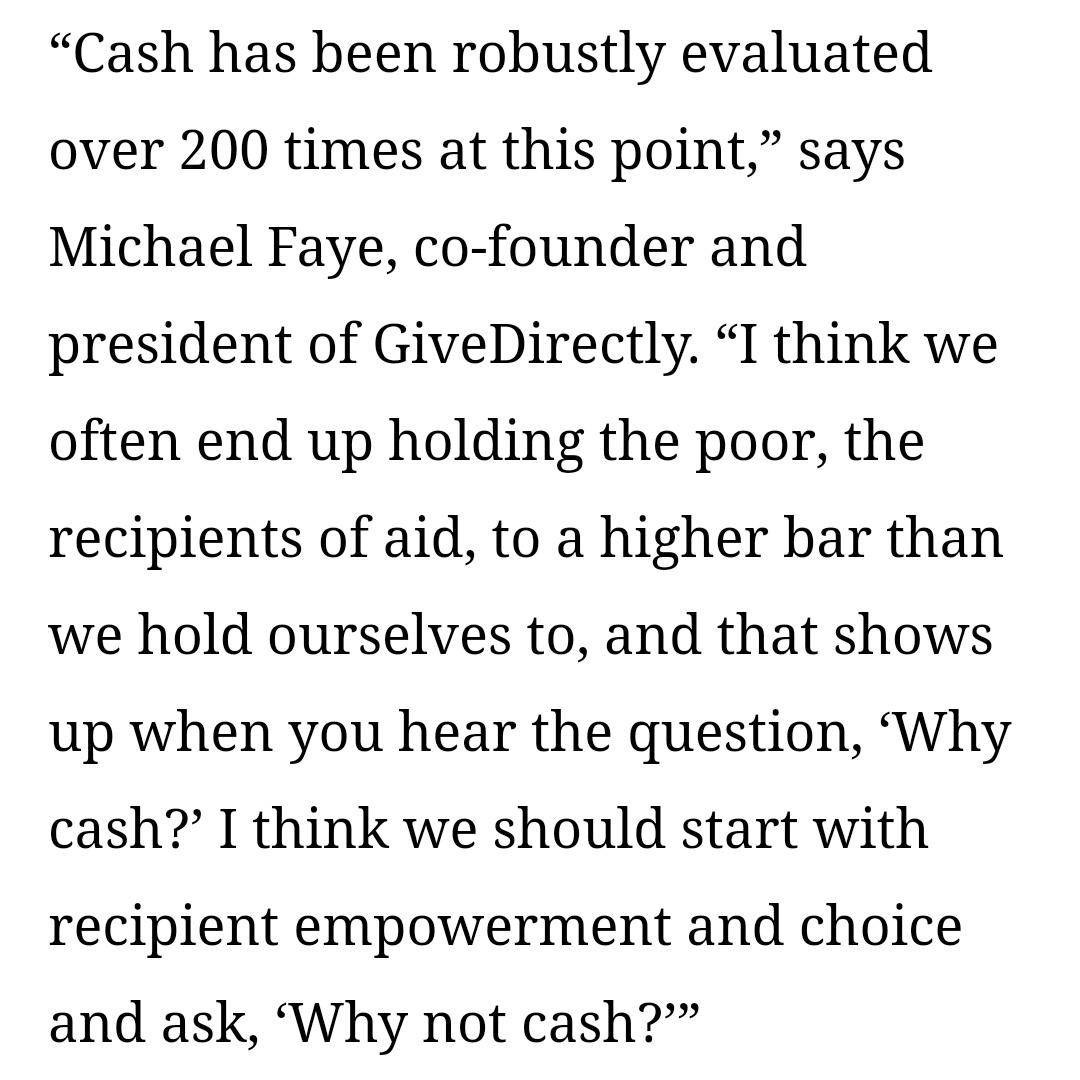
New research into an ongoing quasi-experiment of #UBI as a result of casino dividends in North Carolina shows it has increased self-reported lifespan for men in the bottom 25% by 15 years, meaning that they're less likely to act as if they will die young.
pubmed.ncbi.nlm.nih.gov/32432936/


pubmed.ncbi.nlm.nih.gov/32432936/
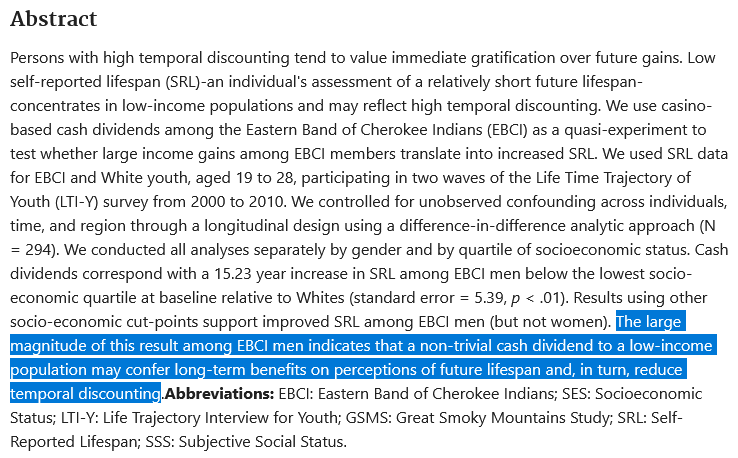
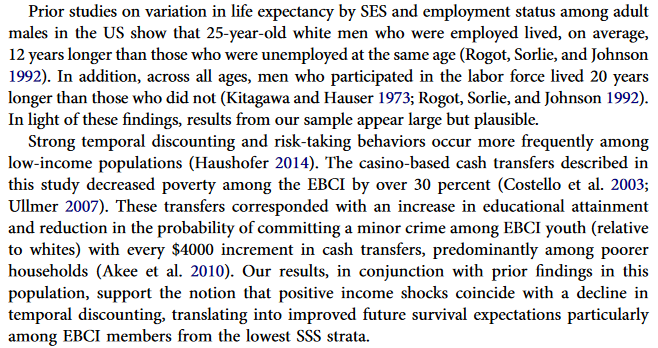
The provision of unconditional cash was tested against psychotherapy costing 2.5x as much. The result was that the cash was more effective than the therapy at improving mental health. It was also just as effective as the combination of the two approaches.
nber.org/papers/w28106

nber.org/papers/w28106
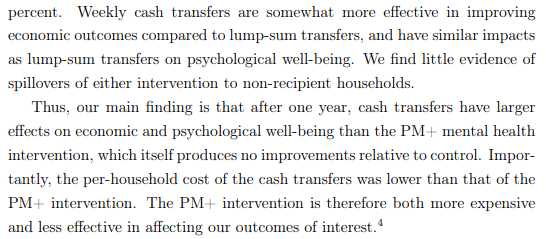
A new meta-analysis of 38 studies finds that cash transfers improve mental health and subjective well-being, and that unconditional cash has a larger impact than conditional cash. The impact also depends on amount, and primary impact is life satisfaction.
happierlivesinstitute.org/cash-transfers…

happierlivesinstitute.org/cash-transfers…
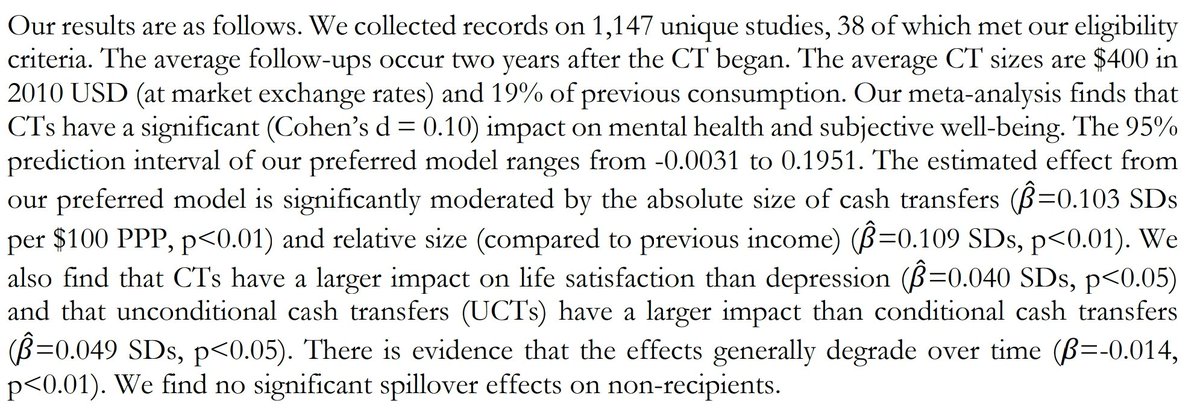
For those concerned about the universality of UBI and how the rich get it too (despite not being net recipients after taxes) here's some new evidence out of Israel where 14% of recipients of universal cash (mostly those with higher incomes) donated it.
https://twitter.com/Ugentilini/status/1347009247826079745
Worried that unconditional basic income will hurt productivity? A new study looked at the impact of increasing cash-on-hand on productivity and found that when people have fewer money concerns they produce more and make fewer mistakes.
Poverty hurts GDP.
nber.org/papers/w28338

Poverty hurts GDP.
nber.org/papers/w28338
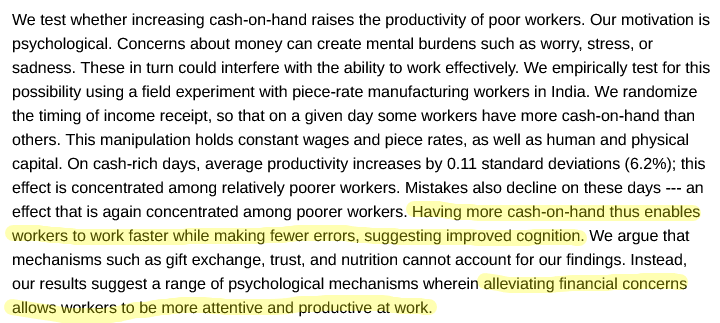
Stockton ran a 2-year basic income pilot of $500/mo with 125 people. In the 1st year recipients went from 28% employed to 40% employed compared to the control group who went from 32% employed to 37% employed.
White paper:
THREAD:
stocktondemonstration.org/s/SEED_Prelimi…
White paper:
THREAD:
stocktondemonstration.org/s/SEED_Prelimi…
https://twitter.com/scottsantens/status/1367144472115576832
Evidence from the C19 pandemic and government responses to it show that income support saved lives by preventing infection and deaths that otherwise would have occurred.
(More evidence that UBI will function as a vaccine to save lives and improve health)
sciencedirect.com/science/articl…

(More evidence that UBI will function as a vaccine to save lives and improve health)
sciencedirect.com/science/articl…
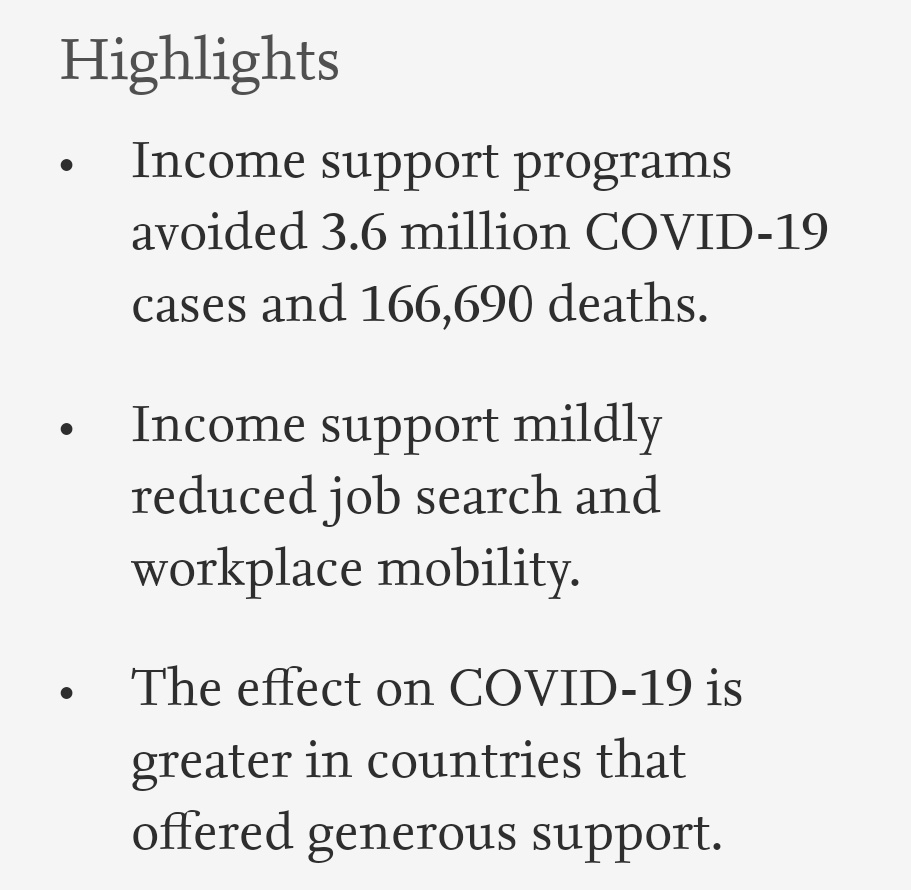
A study using 12 years of data from ~100 million recipients of monthly cash transfers has found a 61% decrease in suicides among recipients. This is more evidence that a #UBI will dramatically improve mental health.
Link to paper:
papers.ssrn.com/sol3/papers.cf…
Link to paper:
papers.ssrn.com/sol3/papers.cf…
https://twitter.com/scottsantens/status/1388565007454048258
UBI was provided to a village of about 150 people in Uganda as part of a 2017-2019 film project to document #UBI in action. The results?
✅10x increase in businesses
✅2x increase (to 94.7%) in school attendance
✅Better health led to fewer doctor visits
eight.world/busibi




✅10x increase in businesses
✅2x increase (to 94.7%) in school attendance
✅Better health led to fewer doctor visits
eight.world/busibi
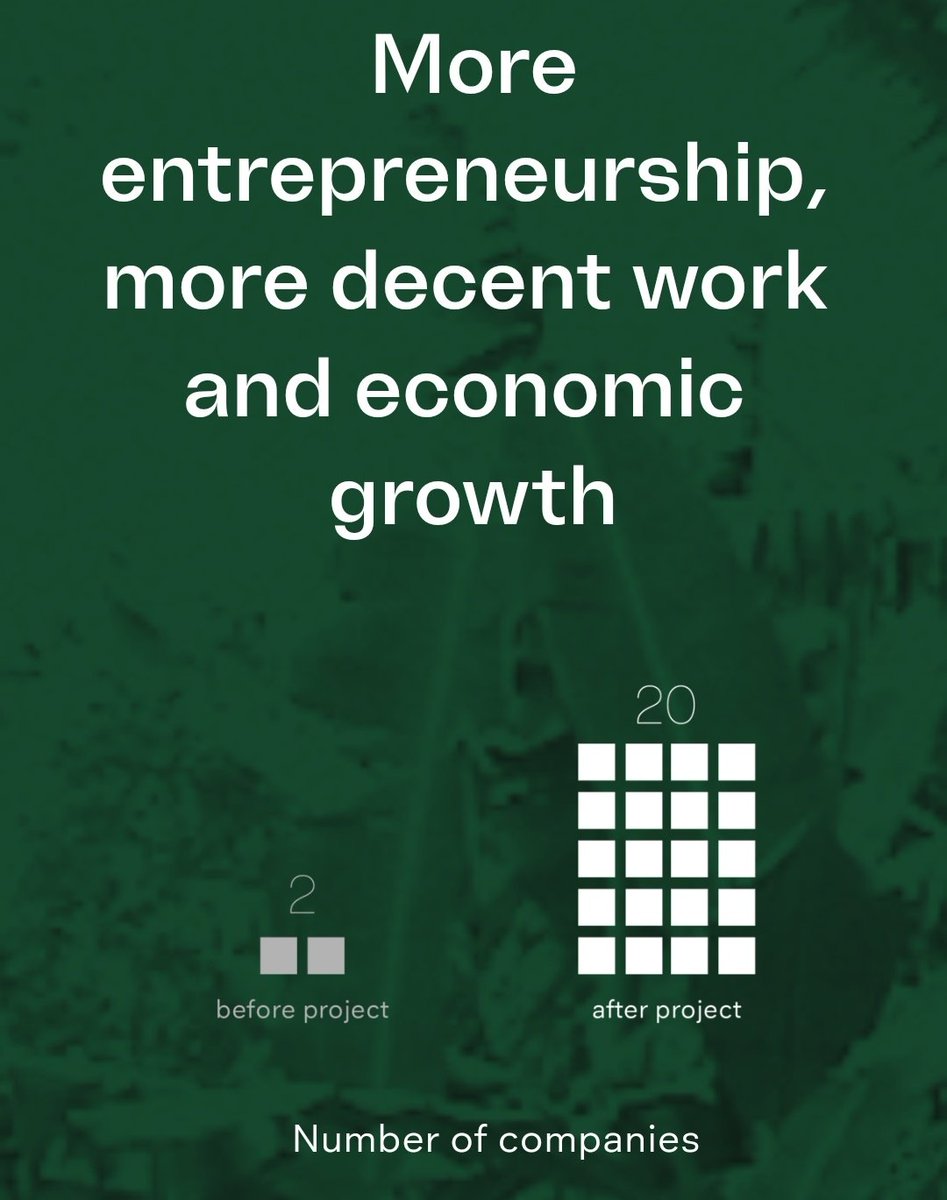
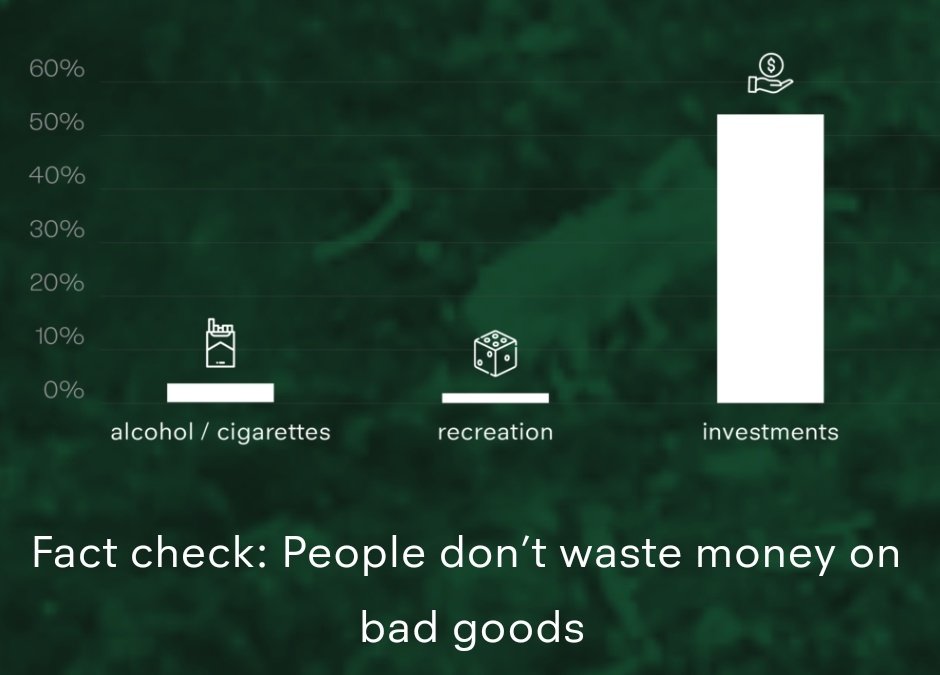

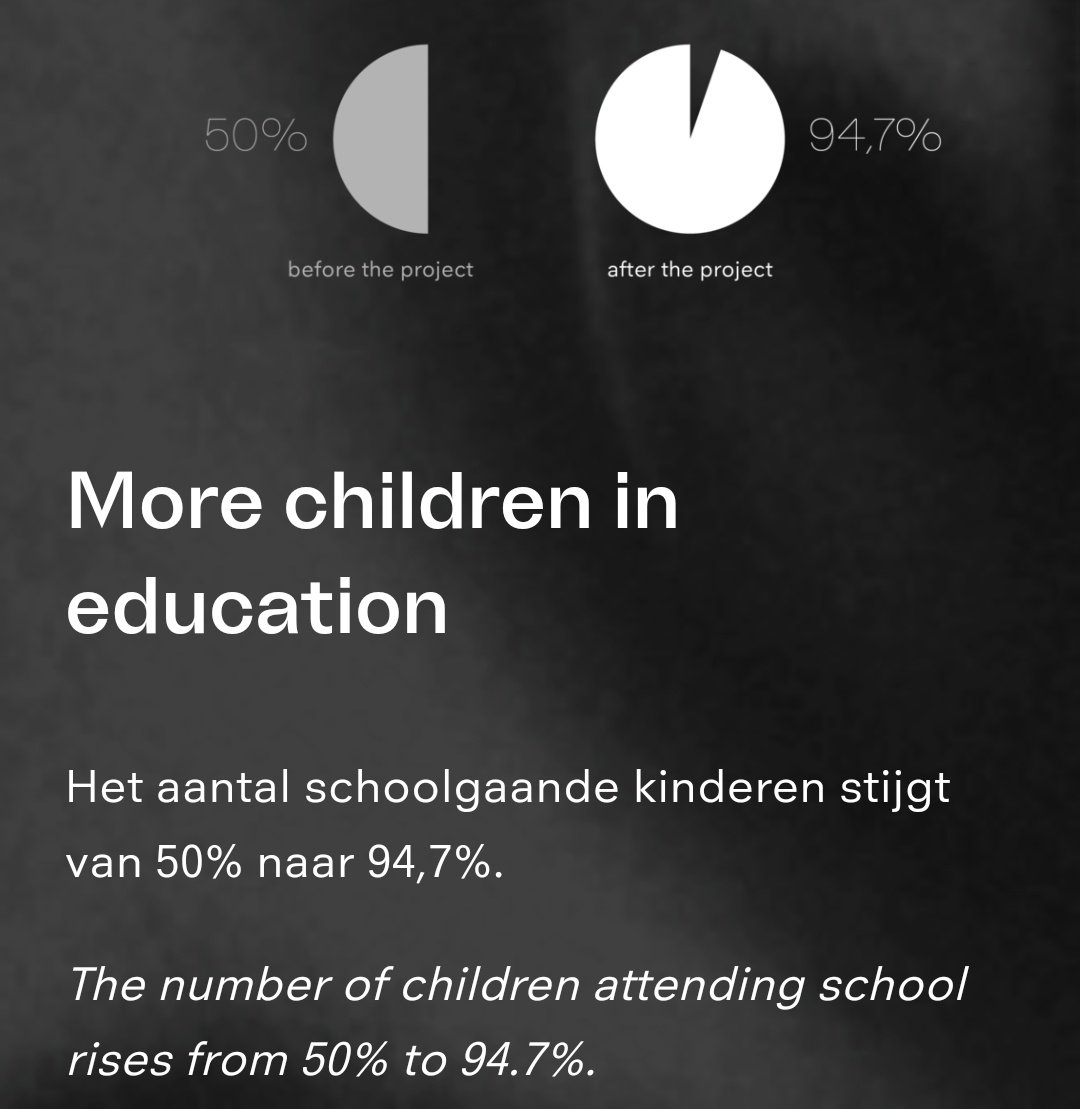
Contrary to assumption-based think tank simulations that claim otherwise, a study of the actual impacts on employment that the monthly child tax credit has had so far now that it lacks a work requirement does not support claims that it reduces employment.
povertycenter.columbia.edu/publication/20…

povertycenter.columbia.edu/publication/20…

Key finding of a large study of 6,000 households using 11 years of data: "People stay poor because they lack opportunity. It is not their intrinsic characteristics that trap people in poverty but rather their circumstances."
We need money to make money.
nber.org/papers/w29340

We need money to make money.
nber.org/papers/w29340

The finding from Stockton, CA of employment doubling among recipients of $500/mo basic income has now been replicated in Hudson, NY where employment went from 29% to 63%. Additionally, physical and mental health improved as psychological distress fell.



https://twitter.com/jainfamilyinst/status/1471860214555099137?t=a20EmYYCVSGGztyH5g5OBg&s=19
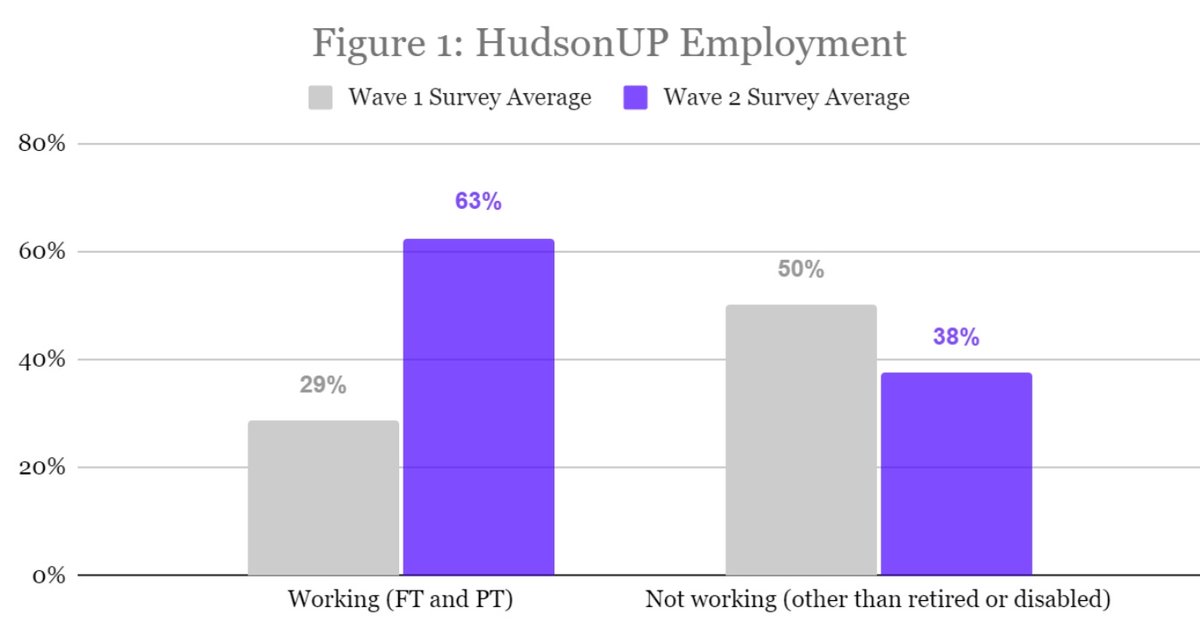
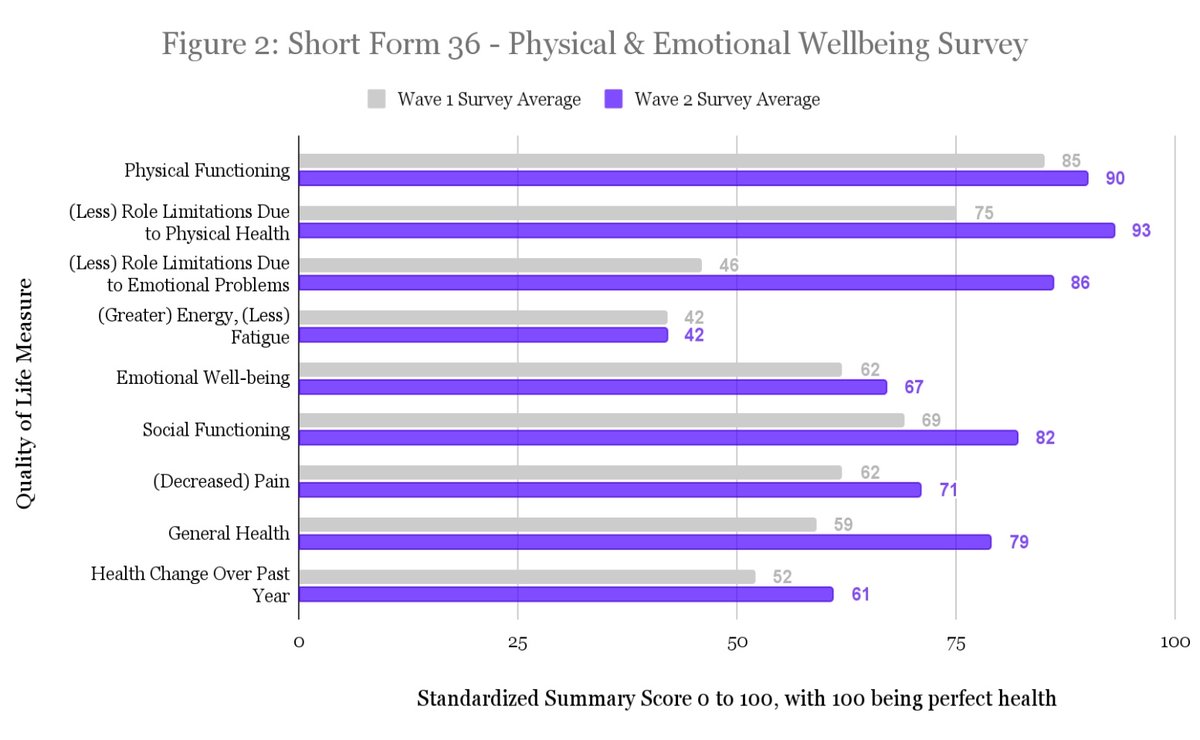
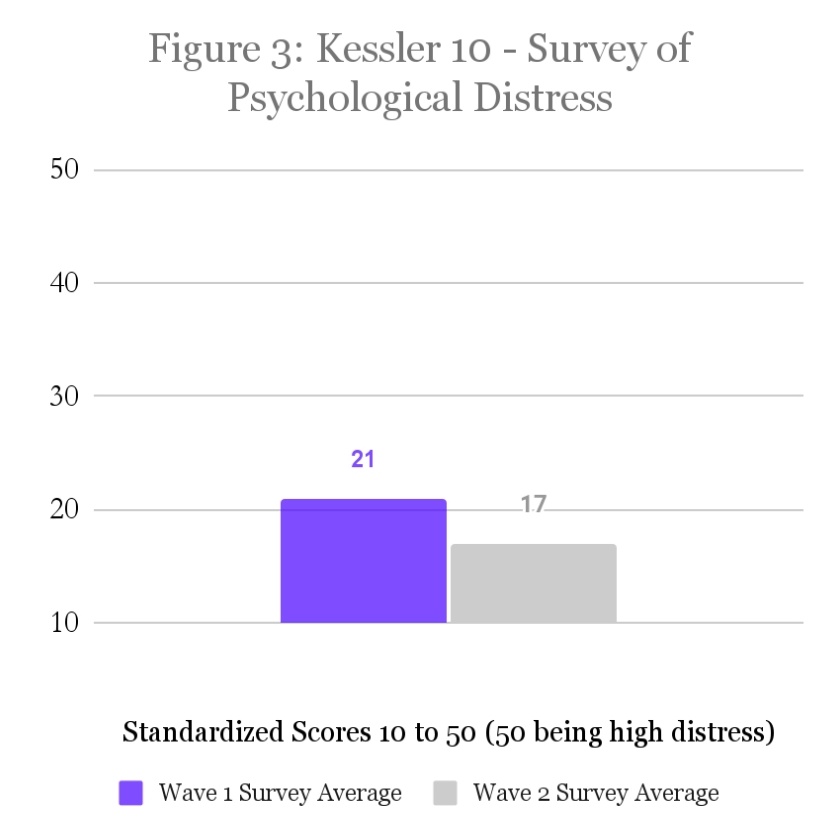
A series of behavioral experiments was designed to test the impacts of basic income. The psychologists concluded that UBI had no negative impact on work, while welfare as we know it did have a negative impact on work. UBI also led to better job matching.
universiteitleiden.nl/en/news/2022/0…

universiteitleiden.nl/en/news/2022/0…

After one year of $333/mo in unconditional monthly cash, infant brain activity patterns changed compared to non-recipients. Lack of sufficient money CAUSES differences in child development. Alleviation is comparable to large-scale education interventions.
medicalxpress.com/news/2022-01-c…


medicalxpress.com/news/2022-01-c…


Fresh evidence: 6 months of at least $250/mo per kid to 9 out of 10 kids in the US had *NO NEGATIVE IMPACT* on the employment status of their parents. This includes those who were previously excluded from the CTC for not earning enough money to claim it.
nber.org/papers/w29823

nber.org/papers/w29823

In 1996, SSI was reformed so that those turning 18 had to reapply. A study of the results of that change reveal that the loss of that income led to a 60% increase in the annual likelihood of incarceration, negating the savings of reduced spending on SSI.
nber.org/papers/w29800

nber.org/papers/w29800

New study of the long-term results of UBI. It counters the claims of those who say UBI only helps if it's short-term or small. The strongest benefits were felt by families with two parents where both got it and for kids who had it for more of their lives.
papers.ssrn.com/sol3/papers.cf…

papers.ssrn.com/sol3/papers.cf…
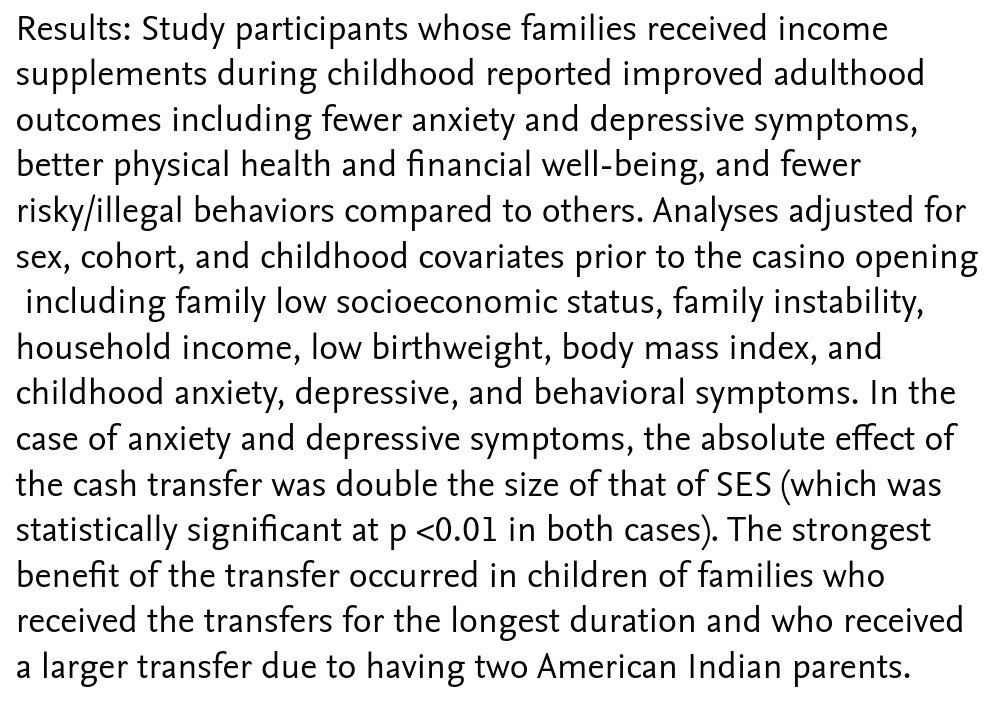
Increasing the incomes of women in the US through a direct cash boost decreases the amount of physical and sexual assaults by their abusive partners. An additional $1,000 decreases violent incidents by 10% and the intensity of the violence by 21%.
(71/x)
nber.org/papers/w29930

(71/x)
nber.org/papers/w29930

A meta-analysis of 24 unconditional cash transfer programs examined their impact on health outcomes and found with "moderate certainty" that no-strings cash led to a "clinically meaningful, very large reduction" in the likelihood of getting sick.
(72/x)
cochranelibrary.com/cdsr/doi/10.10…

(72/x)
cochranelibrary.com/cdsr/doi/10.10…

73: A new study analyzing 20 years of data from large-scale cash transfer programs in 42 countries has discovered that the money had an unexpected impact of reducing rates of HIV and other sexually transmitted infections.
AIDS deaths dropped by 9%.
thedailybeast.com/cash-transfer-…


AIDS deaths dropped by 9%.
thedailybeast.com/cash-transfer-…


Piece of evidence #74: Researchers looked at the difference it makes for a family to receive unconditional cash right after having a baby vs a year later, and found it leads to better math and reading scores, HS grad rates, and higher incomes as adults.
nber.org/papers/w30373


nber.org/papers/w30373


In a randomized control trial, new mothers were provided $333/mo in unconditional basic income for years. What happened?
✔️No decrease in employment
✔️No increase in alcohol or tobacco use
✔️More time spent with kids
✔️More purchases like books for kids
nber.org/papers/w30379




✔️No decrease in employment
✔️No increase in alcohol or tobacco use
✔️More time spent with kids
✔️More purchases like books for kids
nber.org/papers/w30379

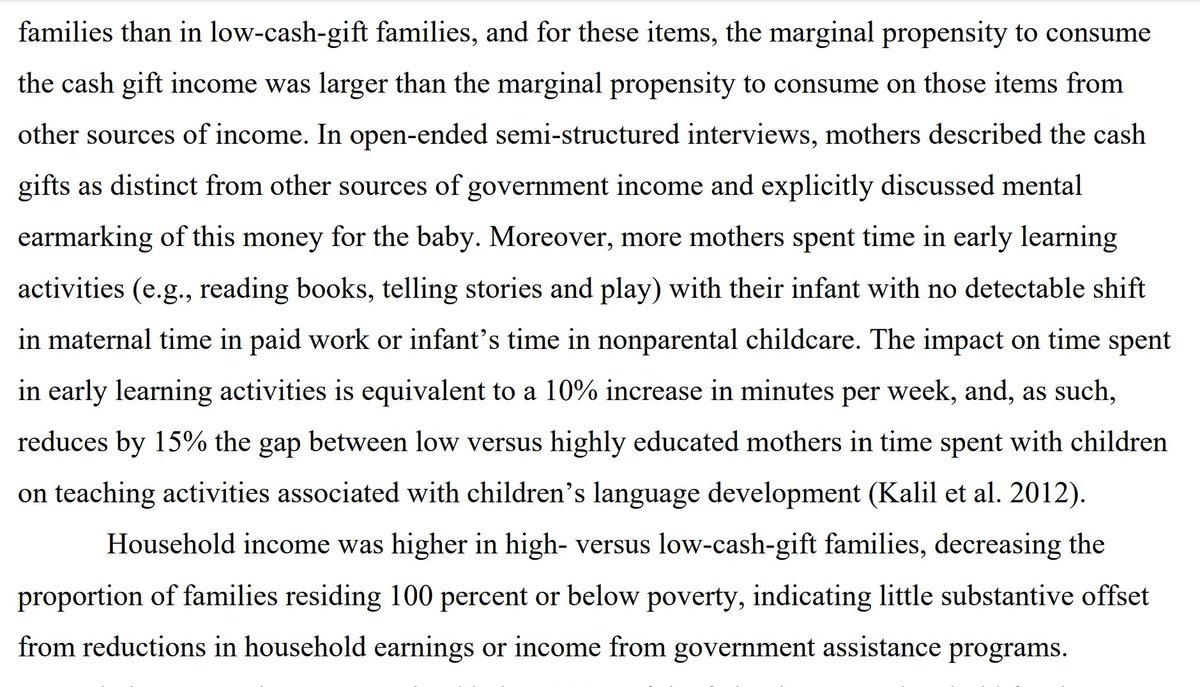
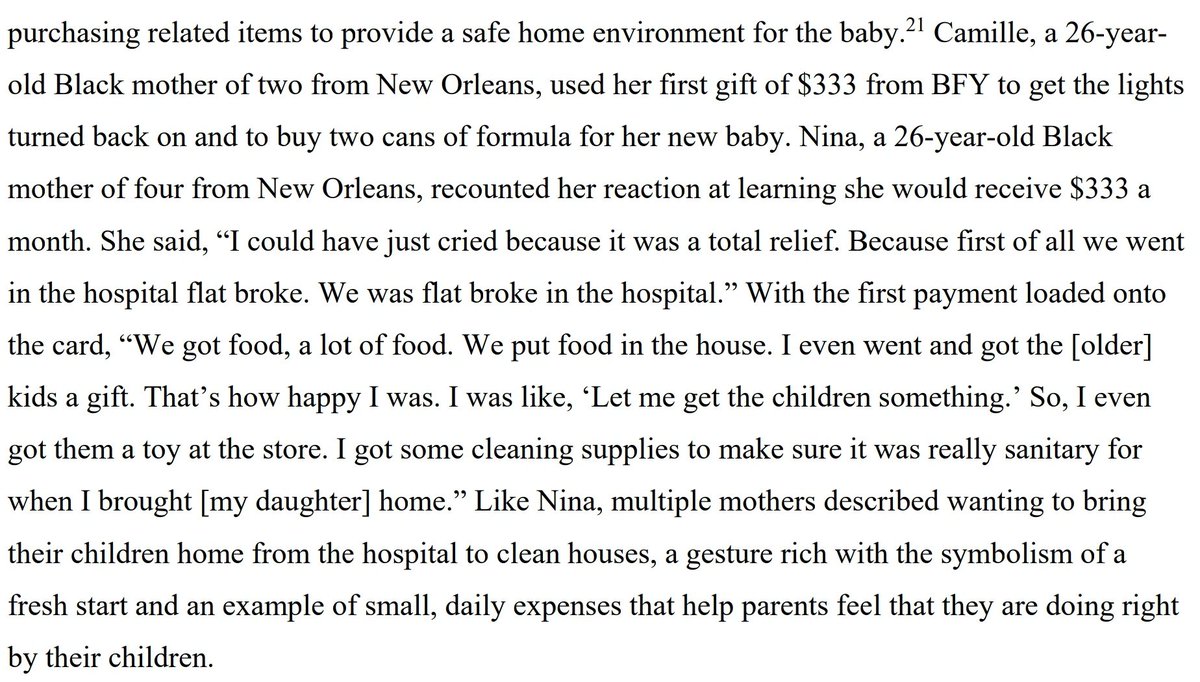

New research shows that adults who got basic income as kids show a range of better outcomes over those who didn't, even at 30 years old. Observations include less anxiety and depression and better financial functioning. Results improve more with more UBI.
madinamerica.com/2022/10/cash-p…




madinamerica.com/2022/10/cash-p…


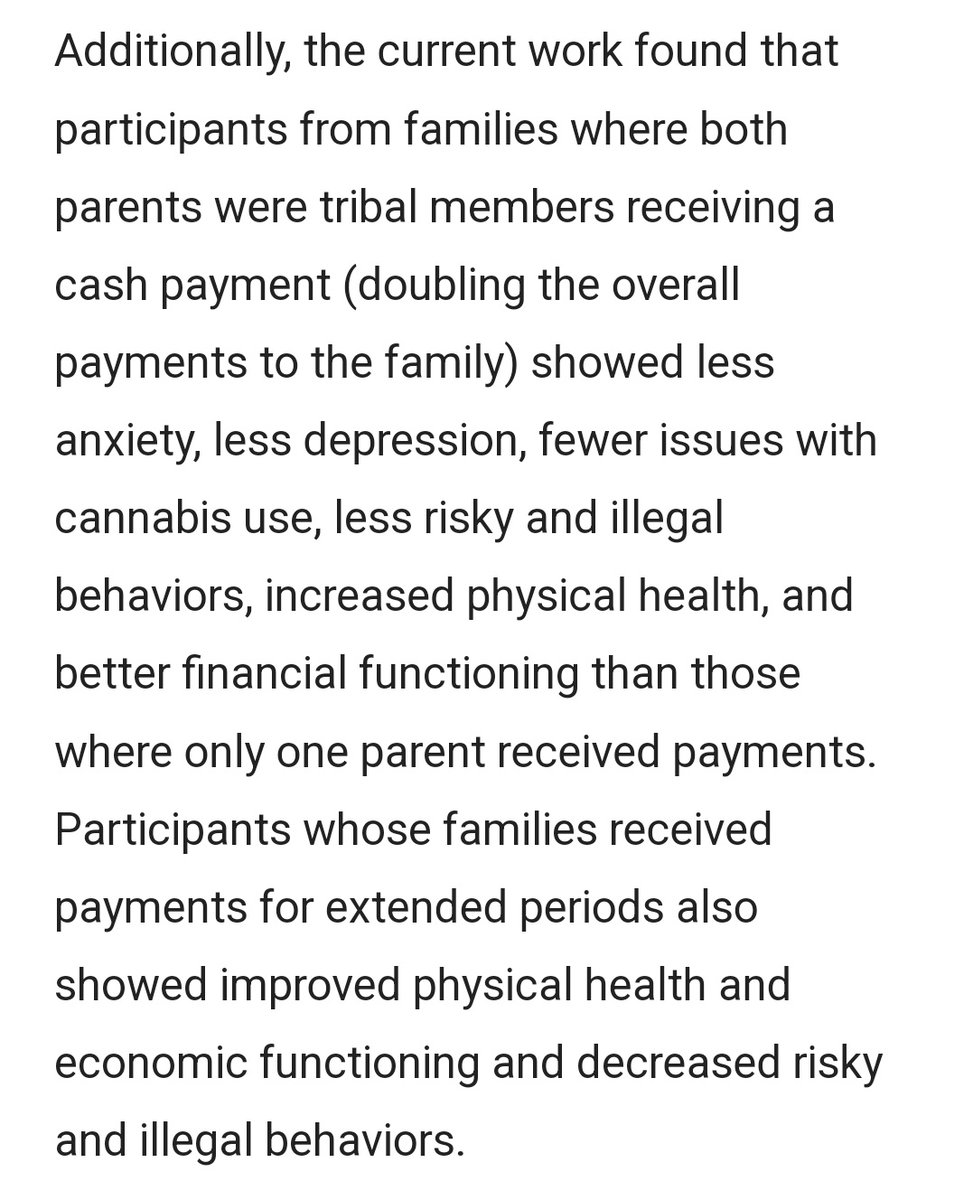

Additional cash in the 1st year of a baby’s life reduces their likelihood of being involved with the child welfare system.
Just $1,000 more to low-income families decreases kids' days spent in foster care by 8%, and CPI investigations by 3%.
google.com/url?q=https%3A…

Just $1,000 more to low-income families decreases kids' days spent in foster care by 8%, and CPI investigations by 3%.
google.com/url?q=https%3A…

78. New research shows that Alaska's annually distributed universal basic income has had a significant positive effect on voter turnout. With each additional $1k of UBI, voting increased by 7.6 percentage points in the short-term and 4.3 in the long-term.
cambridge.org/core/journals/…




cambridge.org/core/journals/…




79. The child tax credit expansion where parents started getting $250-$300 a month per kid for 6 months in 2021 reduced depressive symptoms by 1.7 percentage points and anxiety by over 13%. Effects were even larger for Black and Hispanic parents.
Source: healthaffairs.org/doi/10.1377/hl…

Source: healthaffairs.org/doi/10.1377/hl…

80. Preliminary results 2 years into 5-year pilot of $500/mo unconditional basic income in Hudson, NY:
UBI recipients did not work less. They worked more. Pilot participants have higher rates of part-time + full-time employment now than when it started.
jainfamilyinstitute.org/news/hudsonup-…

UBI recipients did not work less. They worked more. Pilot participants have higher rates of part-time + full-time employment now than when it started.
jainfamilyinstitute.org/news/hudsonup-…

81. What happened 2 years after an unconditional basic income pilot ended in Uganda? UBI's effects persisted. Large sustained effects were found on food security, entrepreneurship, Covid resilience, reduced crime, life satisfaction, and collective action.
repository.uantwerpen.be/docman/irua/81…




repository.uantwerpen.be/docman/irua/81…


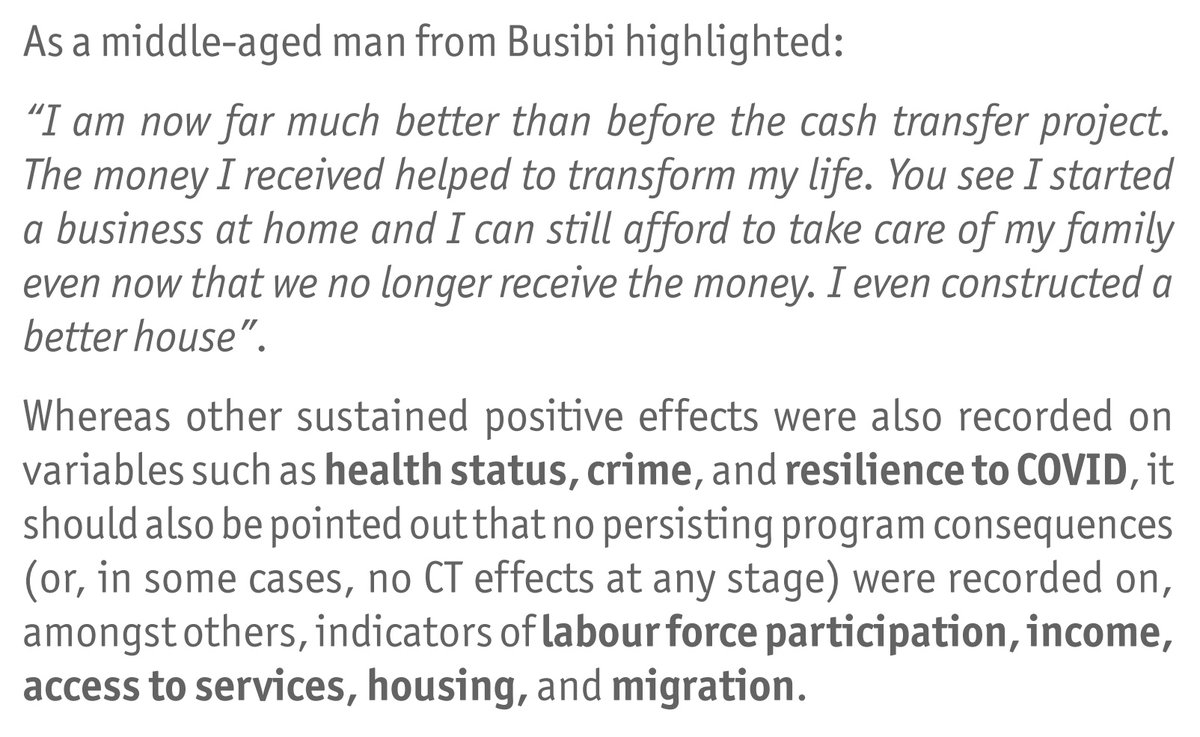
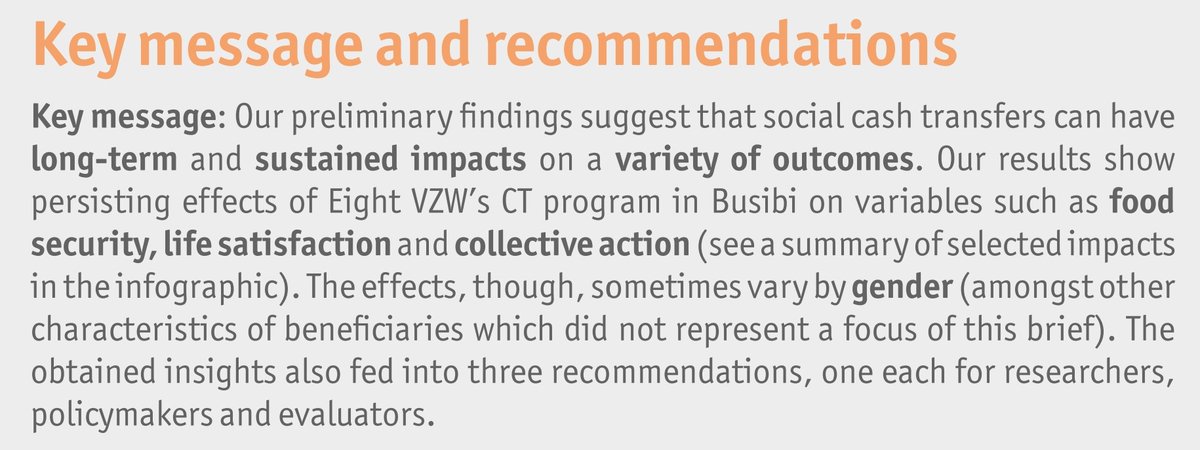
82. Recent research has established a bidirectional causal relationship between poverty and mental illness. Cash transfers reduce depression and anxiety and break the loop of poor mental health leading to less income leading to worse mental health.
science.org/doi/abs/10.112…




science.org/doi/abs/10.112…
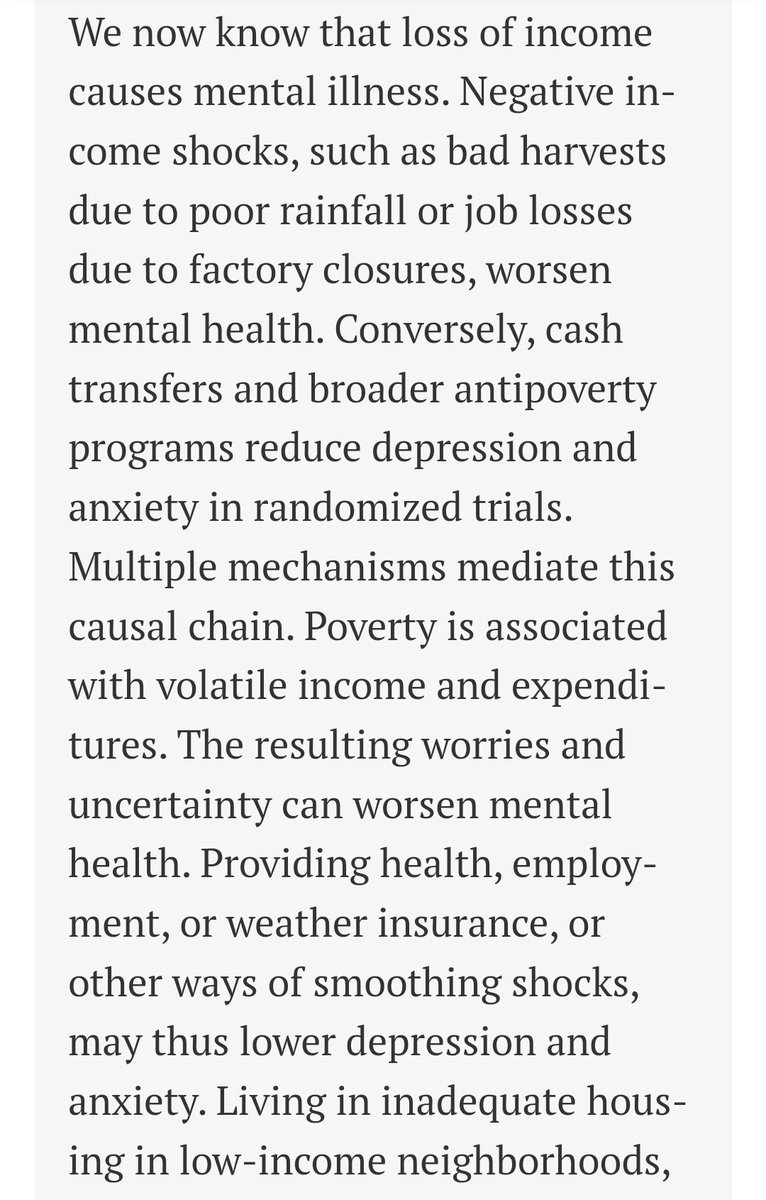
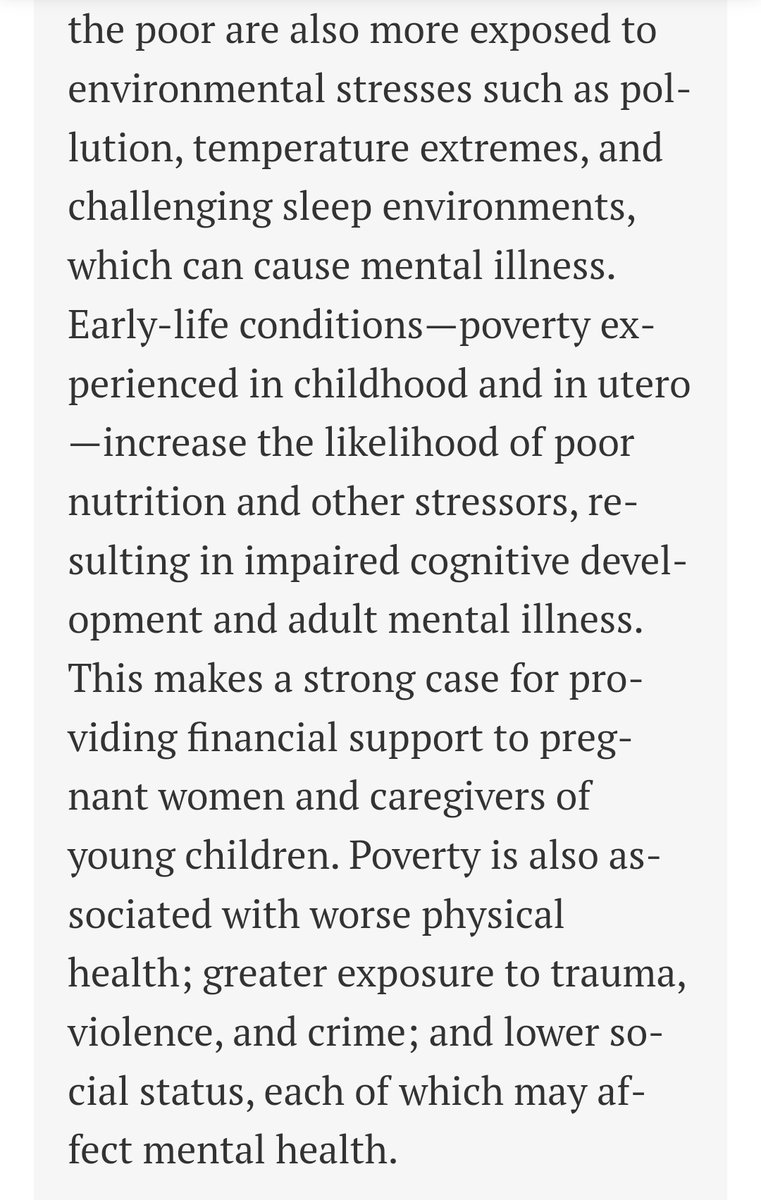


83. A meta-analysis of studies done globally on the mental health impacts of cash transfers on kids up to age 19 found an overall positive effect on mental health with the caveat that making cash conditional vs unconditional can have negative impacts, especially on girls.
"On the whole, monetary poverty alleviation programs improve the mental health of children and adolescents living in poverty and can provide essential support to help break the vicious cycle between poverty and mental ill health."
sciencedirect.com/science/articl…


"On the whole, monetary poverty alleviation programs improve the mental health of children and adolescents living in poverty and can provide essential support to help break the vicious cycle between poverty and mental ill health."
sciencedirect.com/science/articl…
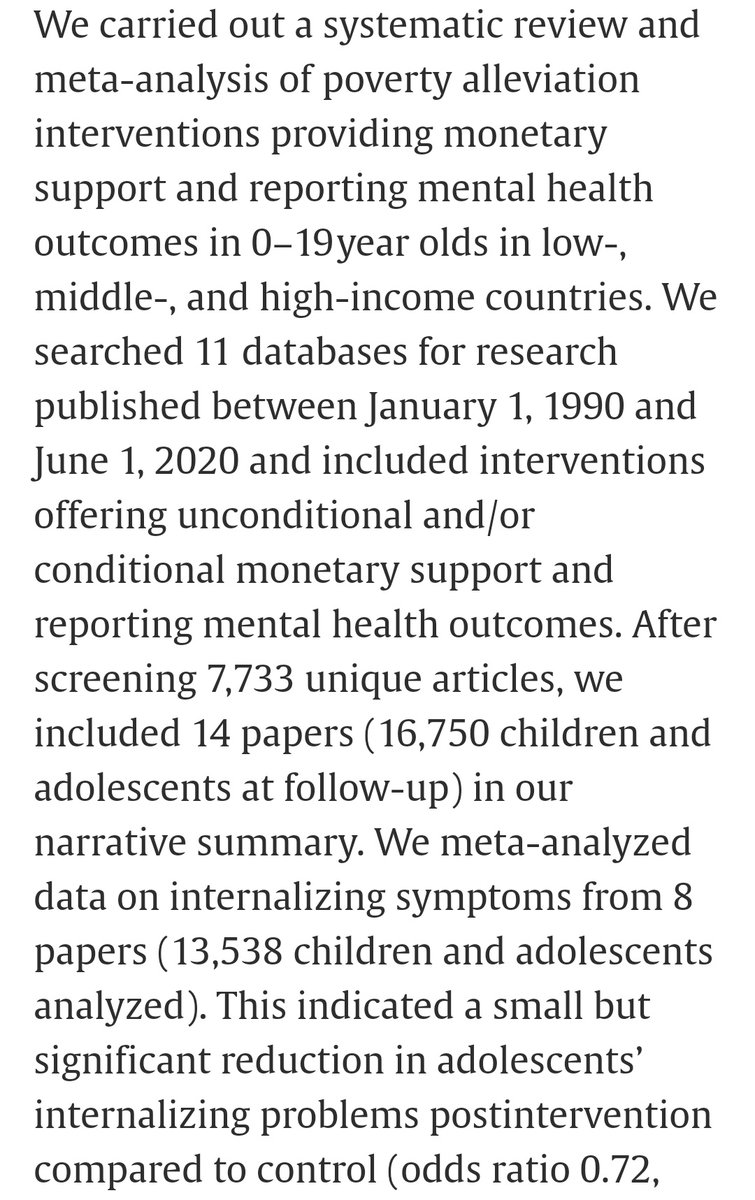
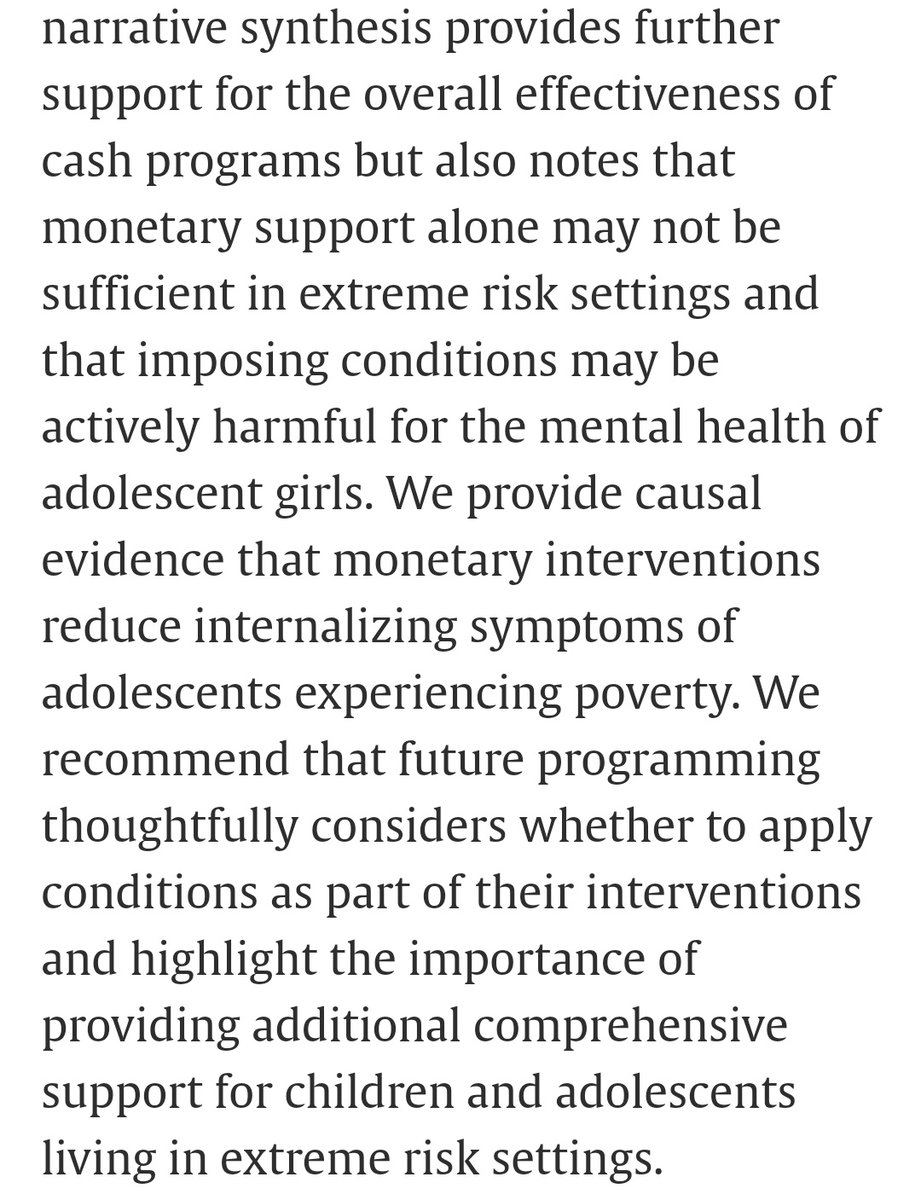
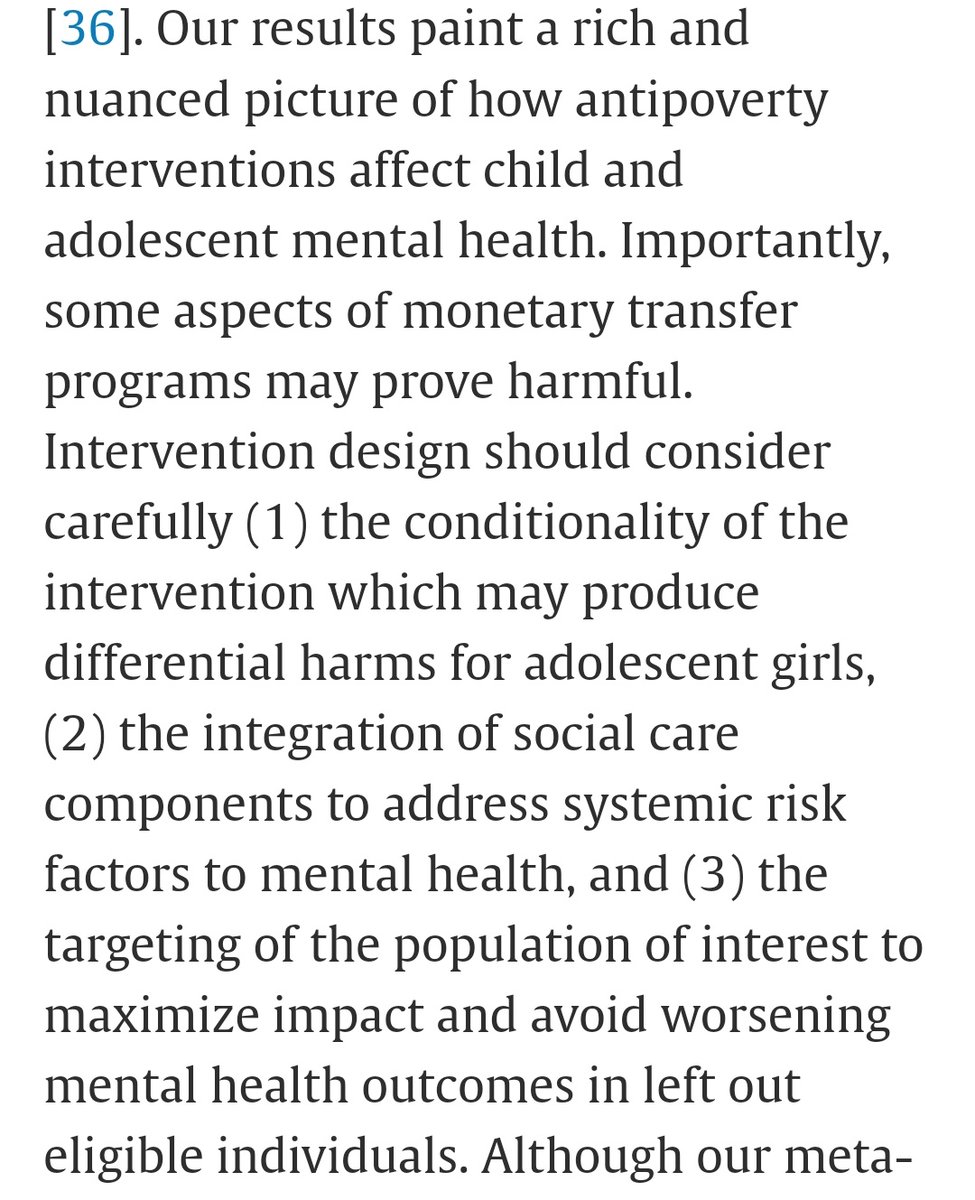
84. The final results of the Stockton #BasicIncome pilot show that those who received an unconditional monthly payment of $500/mo for two years fared better than the control group, and even had better health during the pandemic.
sp2.upenn.edu/study-guarante…


sp2.upenn.edu/study-guarante…
https://twitter.com/scottsantens/status/1645862340062072880?t=gbyrtqXhvJScMF51gK9qGg&s=19


85. A study of the enhanced CTC that paid parents every month for six months in 2021 has determined that the payments reduced child abuse during the 4 days immediately after a payment arrived.
Abuse dropped the most for boys and non-Hispanic White kids.
jamanetwork.com/journals/jaman…

Abuse dropped the most for boys and non-Hispanic White kids.
jamanetwork.com/journals/jaman…
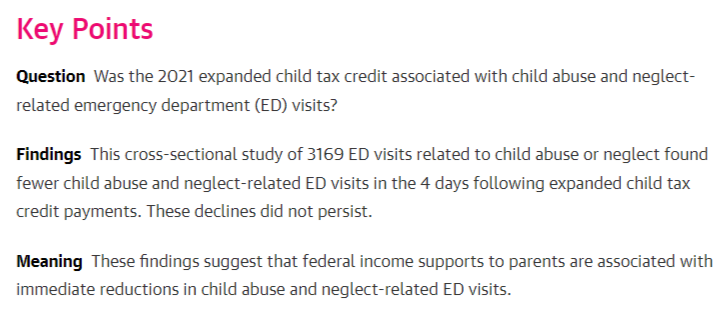
86. Newly digitized survey data from married women during Canada's experiment with a basic income guarantee in the 1970s shows that although it did not increase divorce rates (which was a big fear at the time), it did empower women and reduce conflicts.
academic.oup.com/ser/article/20…




academic.oup.com/ser/article/20…




A new study of 7+ million people from 2000-2019 across 37 countries has found a significant impact of cash transfers on all-cause mortality. Women's deaths fell by 20% and deaths of kids under age 5 fell by 8%. The more money, the greater the impact. 87/
nature.com/articles/s4158…




nature.com/articles/s4158…
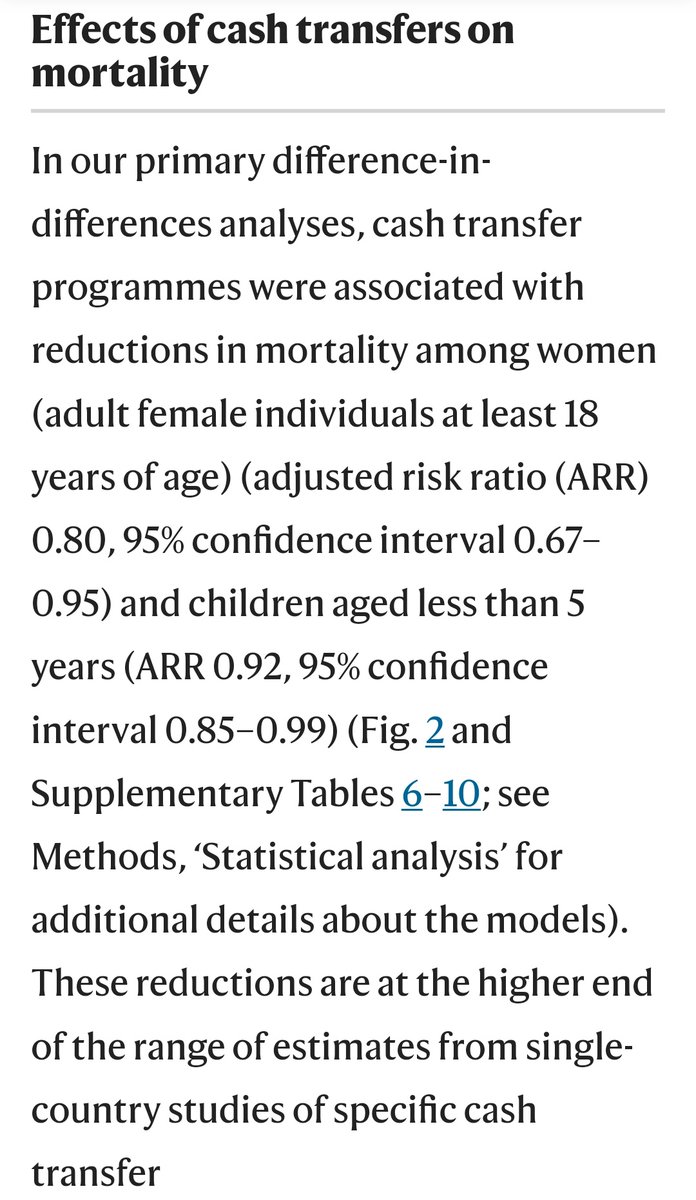
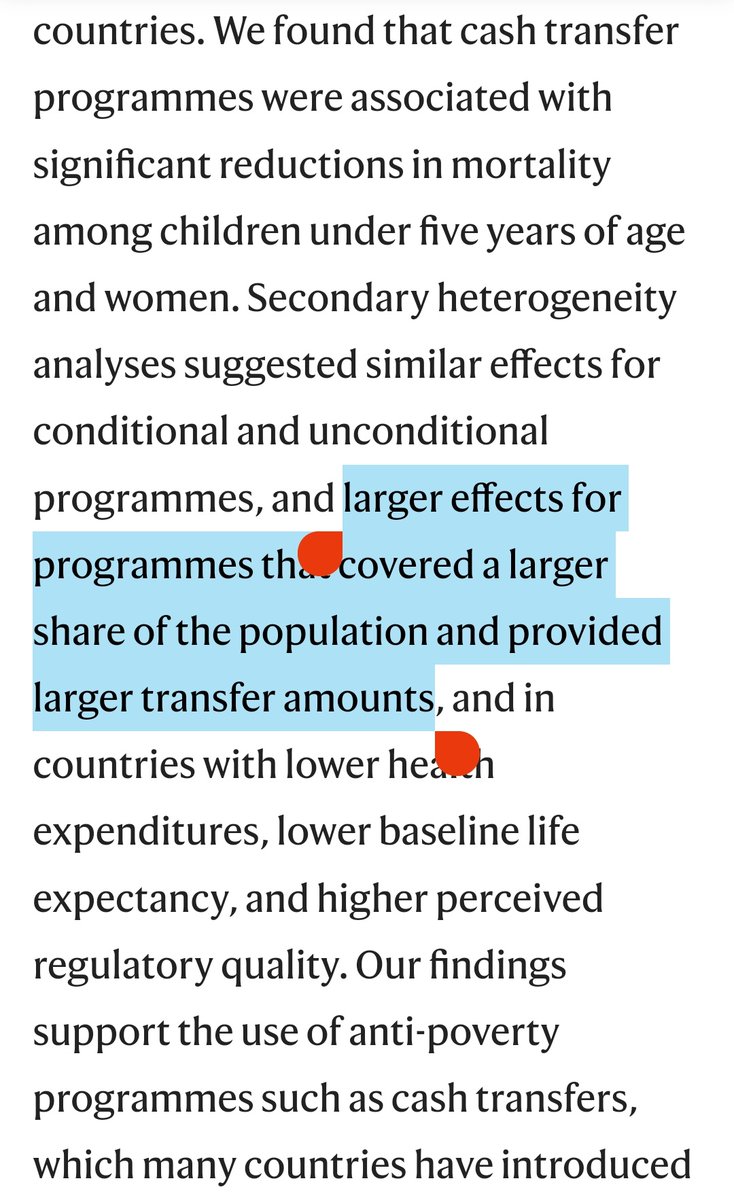
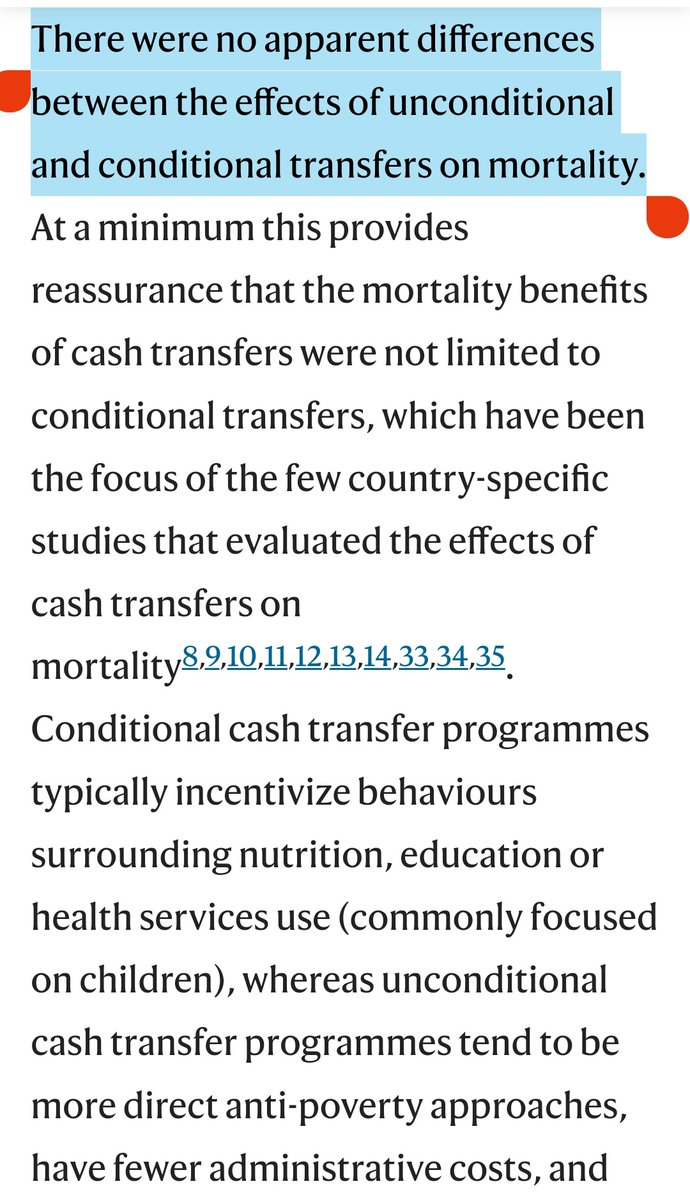
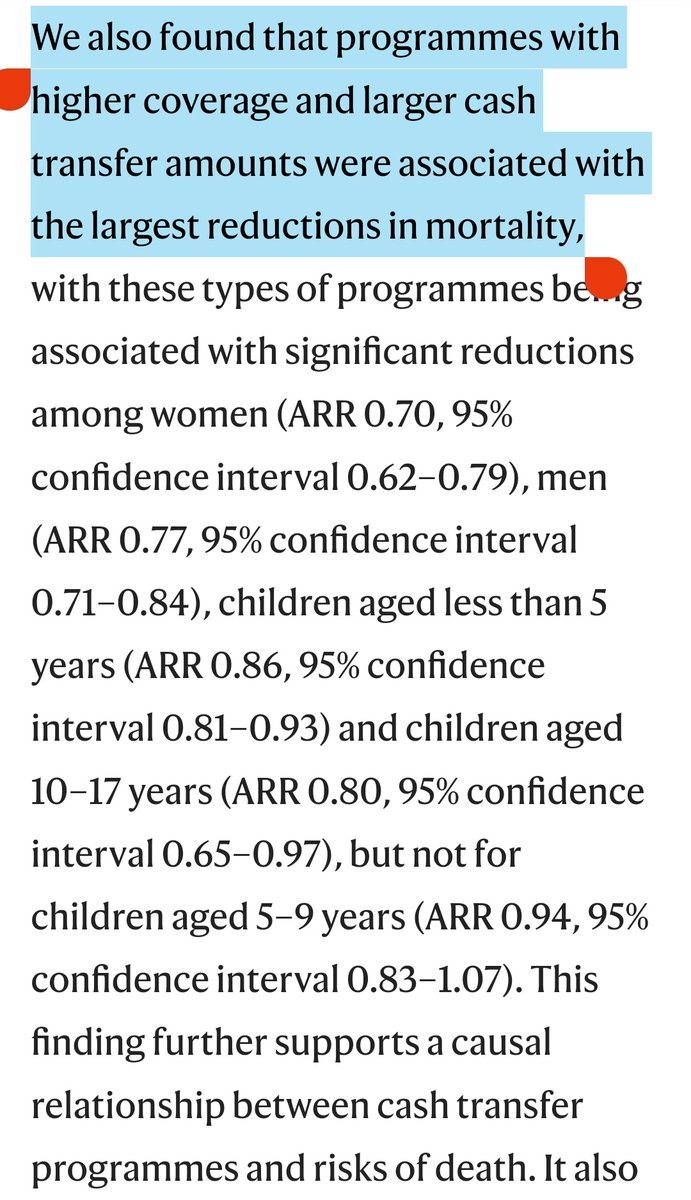
Basic Income Exhibit #88
Location: Welle, Uganda
Participants: 350 (entire village)
UBI Amount: €15 per month
Duration: 2.5 years (so far)
Results: SEE BELOW
Location: Welle, Uganda
Participants: 350 (entire village)
UBI Amount: €15 per month
Duration: 2.5 years (so far)
Results: SEE BELOW
https://twitter.com/scottsantens/status/1704147703897174404?t=w35Z7dhlHUI_PlVvhbb2_Q&s=19
#BasicIncome Exhibit #89
New research studying the effects of Alaska's universal annual dividend has revealed it reduces the number of referrals to Child Protective Services. An additional $1000 reduces CPS referrals by 10%.
Also, fewer children die.
nber.org/papers/w31733

New research studying the effects of Alaska's universal annual dividend has revealed it reduces the number of referrals to Child Protective Services. An additional $1000 reduces CPS referrals by 10%.
Also, fewer children die.
nber.org/papers/w31733

Basic Income Evidence Exhibit #90
A systematic review of 23 studies of the multiplier effects of cash transfers confirm that a dollar allocated to a beneficiary household creates added value in the local and national economy.
"Easing a household’s budget constraint has effects beyond the immediate recipient. An increase in purchasing power raises demand for goods and services, thereby stimulating the local (and national) economy. In order to meet increased demand, local enterprises may expand their production, creating an expansion of the economy."
"This evidence is crucial as it counters the argument that direct cash transfers to poor and vulnerable households are only a cost to the government. Cash transfers are productive investments strengthening household resilience and creating opportunities beyond the immediate beneficiary."
Authors: @gassmann21 @Ugentilini et al
documents1.worldbank.org/curated/en/099…
A systematic review of 23 studies of the multiplier effects of cash transfers confirm that a dollar allocated to a beneficiary household creates added value in the local and national economy.
"Easing a household’s budget constraint has effects beyond the immediate recipient. An increase in purchasing power raises demand for goods and services, thereby stimulating the local (and national) economy. In order to meet increased demand, local enterprises may expand their production, creating an expansion of the economy."
"This evidence is crucial as it counters the argument that direct cash transfers to poor and vulnerable households are only a cost to the government. Cash transfers are productive investments strengthening household resilience and creating opportunities beyond the immediate beneficiary."
Authors: @gassmann21 @Ugentilini et al
documents1.worldbank.org/curated/en/099…

Basic Income Evidence Exhibit #91
A 12-year UBI experiment in Kenya has been providing cash universally to 5,000 people in 44 villages since 2016. Here are the initial findings:
1. Work did not decrease, but shifted significantly from wage labor to self-employment. Overall work actually increased, but not significantly.
2. Wages went up, but the price of goods and services did not. Aka, no inflation despite a 15% increase in the amount of money in treatment villages.
3. Profits of businesses increased 52% despite the higher costs of labor, because they had so many more customers.
4. The number of non-agricultural businesses increased by 25%.
5. People reported seeing fewer of their neighbors drinking daily, and were less likely to perceive drinking as a problem.
6. Households borrowed less money.
7. Rates of depression significantly decreased.
8. Happiness increased. Participants described being 1/5 of one step closer to their best possible life on a 0-10 step scale.
conference.nber.org/conf_papers/f1…

A 12-year UBI experiment in Kenya has been providing cash universally to 5,000 people in 44 villages since 2016. Here are the initial findings:
1. Work did not decrease, but shifted significantly from wage labor to self-employment. Overall work actually increased, but not significantly.
2. Wages went up, but the price of goods and services did not. Aka, no inflation despite a 15% increase in the amount of money in treatment villages.
3. Profits of businesses increased 52% despite the higher costs of labor, because they had so many more customers.
4. The number of non-agricultural businesses increased by 25%.
5. People reported seeing fewer of their neighbors drinking daily, and were less likely to perceive drinking as a problem.
6. Households borrowed less money.
7. Rates of depression significantly decreased.
8. Happiness increased. Participants described being 1/5 of one step closer to their best possible life on a 0-10 step scale.
conference.nber.org/conf_papers/f1…
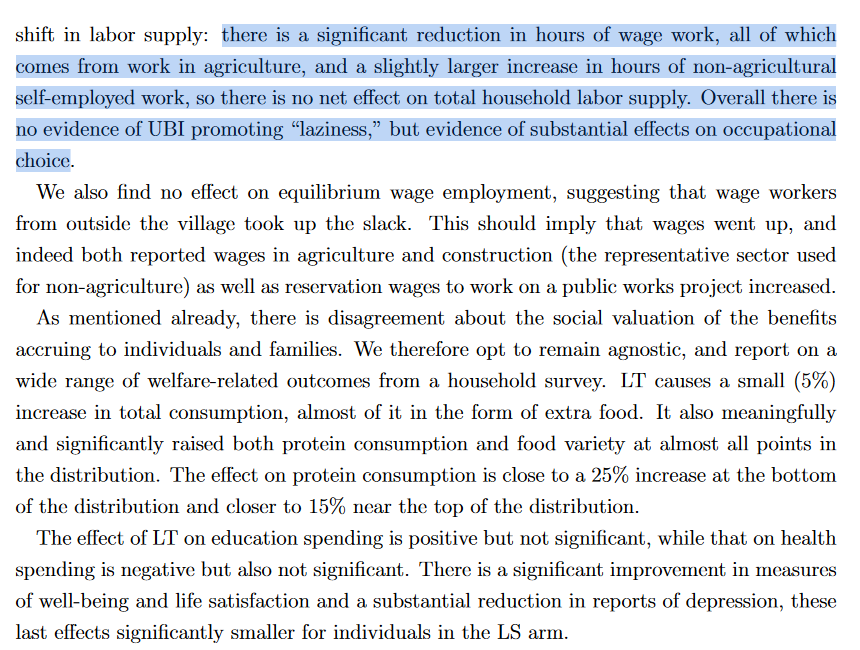

Basic Income Evidence Piece #92
Location: Saint Paul, MN
Participants: 150
Amount: $500/mo
Duration: 1.5 years
Observation: Unemployment decreased
The number of unemployed went from 18% to 5%, and the number not in the labor force went from 17% to 9%.
Location: Saint Paul, MN
Participants: 150
Amount: $500/mo
Duration: 1.5 years
Observation: Unemployment decreased
The number of unemployed went from 18% to 5%, and the number not in the labor force went from 17% to 9%.
https://twitter.com/scottsantens/status/1745909184200151081?t=biVEB2Ke5GPnrKrUhcCvFQ&s=19
Basic Income Evidence Piece #93
Location: Arlington, Virginia
Participants: 200
Amount: $500/mo
Duration: 2 years
Results:
-Employment INCREASED by 16%
-Incomes from paid work INCREASED by 37%
-Improved mental + physical wellbeing
-More sense of control
Location: Arlington, Virginia
Participants: 200
Amount: $500/mo
Duration: 2 years
Results:
-Employment INCREASED by 16%
-Incomes from paid work INCREASED by 37%
-Improved mental + physical wellbeing
-More sense of control
https://twitter.com/scottsantens/status/1755226800194511139
Basic Income Evidence Piece #94
Location: Austin, TX
Participants: 135
Amount: $1,000/mo
Duration: 1 year
9% reported working less and 7% reported working more. Of those who worked less, 1/2 upskilled for better jobs, and half chose unpaid care work.
Location: Austin, TX
Participants: 135
Amount: $1,000/mo
Duration: 1 year
9% reported working less and 7% reported working more. Of those who worked less, 1/2 upskilled for better jobs, and half chose unpaid care work.
https://twitter.com/scottsantens/status/1750178842487009775?t=SIk7R0TWJeAgs9Ywn2f6Tw&s=19
Basic Income Evidence Piece #95
Location: Minneapolis, MN
Participants: 200
Amount: $500/mo
Duration: 2 years (halfway)
Design: RCT
Food security, financial security, well-being, and psychological wellness all improved, and employment did not decrease.
Location: Minneapolis, MN
Participants: 200
Amount: $500/mo
Duration: 2 years (halfway)
Design: RCT
Food security, financial security, well-being, and psychological wellness all improved, and employment did not decrease.
https://twitter.com/scottsantens/status/1750588039846338717?t=SIk7R0TWJeAgs9Ywn2f6Tw&s=19
Basic Income Evidence Piece #96
Location: Paterson, NJ
Participants: 110
Amount: $400/mo
Duration: 1 year
Design: RCT
Income from work INCREASED significantly for those provided basic income compared to the control group that didn’t get basic income.
Location: Paterson, NJ
Participants: 110
Amount: $400/mo
Duration: 1 year
Design: RCT
Income from work INCREASED significantly for those provided basic income compared to the control group that didn’t get basic income.
https://twitter.com/scottsantens/status/1762174736937652506?t=kn_CDGAguSCwMUxlockhTg&s=19
UBI Evidence 🧵 Part 97:
Receipt of monthly cash transfers in South Africa led later in life to slower aging-related memory decline, lower dementia probability, significantly better cognitive function, and even significantly reduced risk of mortality.
Receipt of monthly cash transfers in South Africa led later in life to slower aging-related memory decline, lower dementia probability, significantly better cognitive function, and even significantly reduced risk of mortality.
https://twitter.com/scottsantens/status/1755601212320383018
UBI Evidence🧵 Part 98
Location: San Antonio, TX
Participants: 1,000
Amount: $1,908 upfront + $400 every 3 months
Duration: 2 years
Income from work increased, and time with family also increased.
Participants recommended monthly vs quarterly payments.
Location: San Antonio, TX
Participants: 1,000
Amount: $1,908 upfront + $400 every 3 months
Duration: 2 years
Income from work increased, and time with family also increased.
Participants recommended monthly vs quarterly payments.
https://twitter.com/scottsantens/status/1768649121152344223?t=wSY5alAPxgvaa0YLQjvMRw&s=19
UBI Evidence 🧵 Part 99
Location: Cambridge, MA
Participants: 130
Amount: $500/mo
Duration: 1.5 years
Control Group? YES
Recipients went from 36% FT employed to 40%. Those who didn't get it went from 30% to 28%.
PT and seasonal employment also went up.
Location: Cambridge, MA
Participants: 130
Amount: $500/mo
Duration: 1.5 years
Control Group? YES
Recipients went from 36% FT employed to 40%. Those who didn't get it went from 30% to 28%.
PT and seasonal employment also went up.
https://twitter.com/scottsantens/status/1773707698254516507?t=L1pEzhC64qT7nMK5nD0I4Q&s=19
UBI Evidence 🧵 Part 100
Location: Seattle, WA
Participants: 102
Amount: $500/mo
Duration: 10 months
Employment nearly doubled from 37% to 66%, and job quality dramatically increased with the average pay going up by $410/mo.
Health also improved.
Location: Seattle, WA
Participants: 102
Amount: $500/mo
Duration: 10 months
Employment nearly doubled from 37% to 66%, and job quality dramatically increased with the average pay going up by $410/mo.
Health also improved.
https://twitter.com/scottsantens/status/1777700359961481662?t=5x6odlCR_Xg-jfzar3GWqA&s=19
• • •
Missing some Tweet in this thread? You can try to
force a refresh













